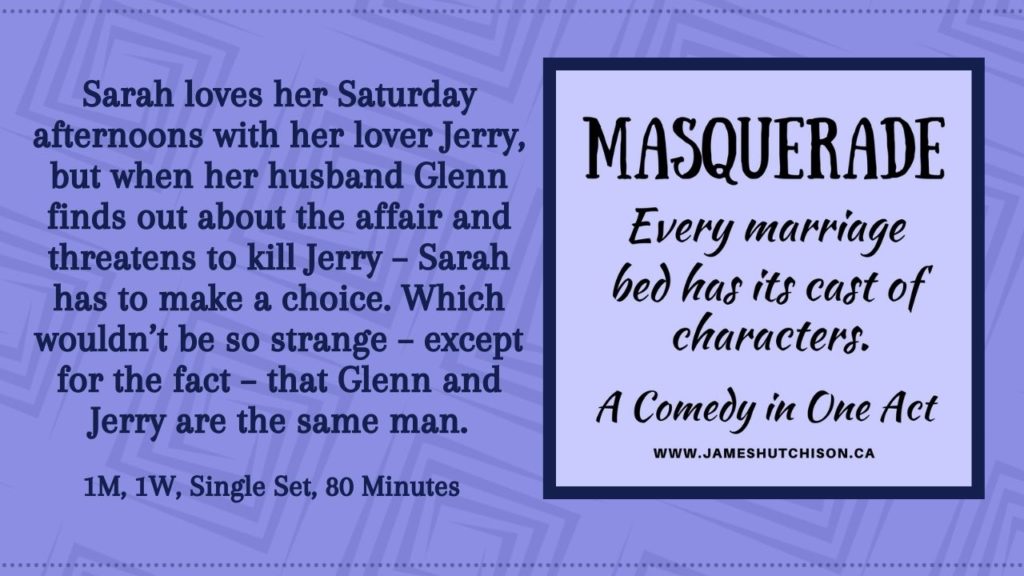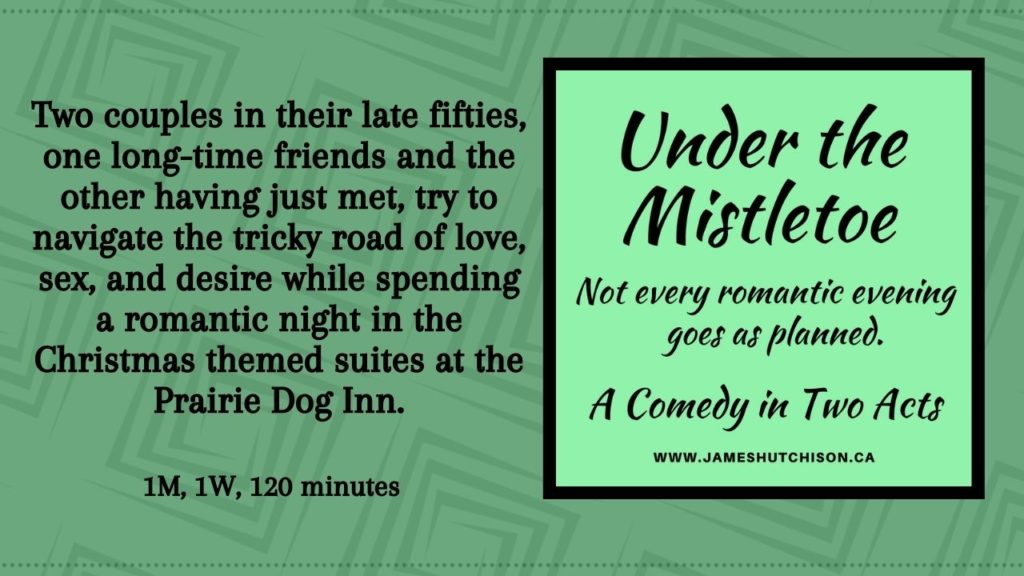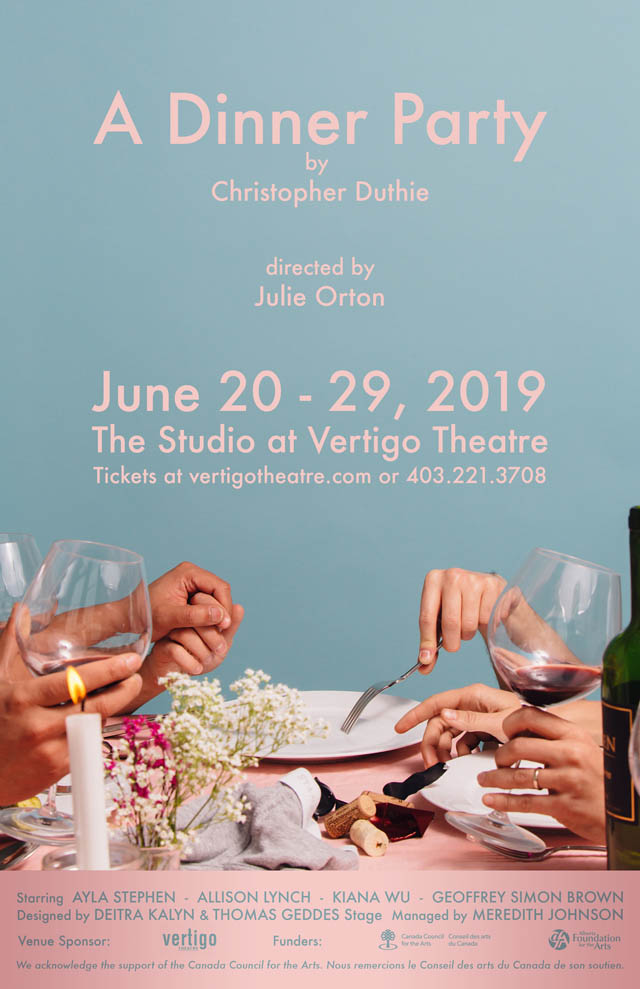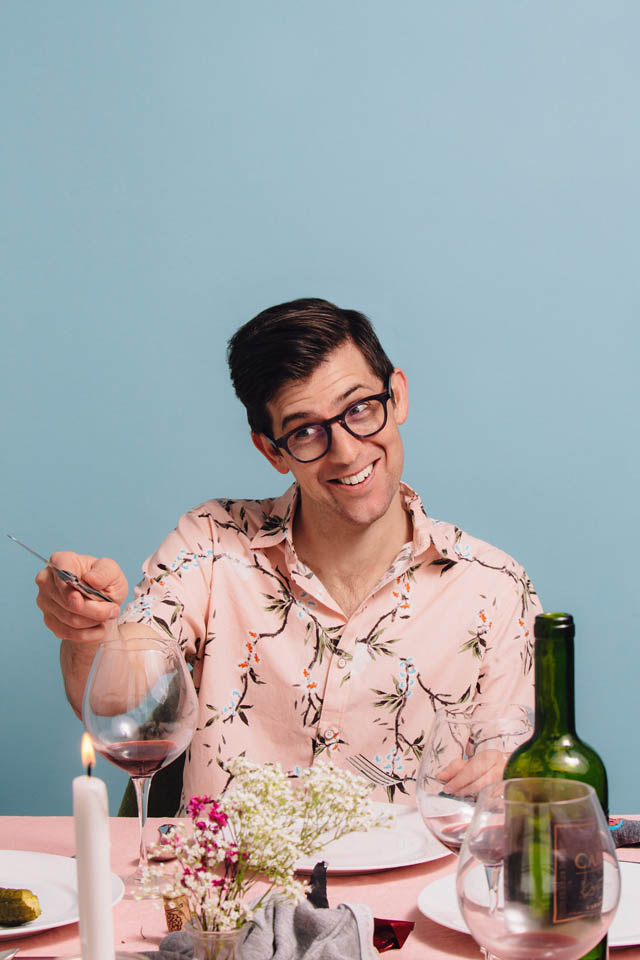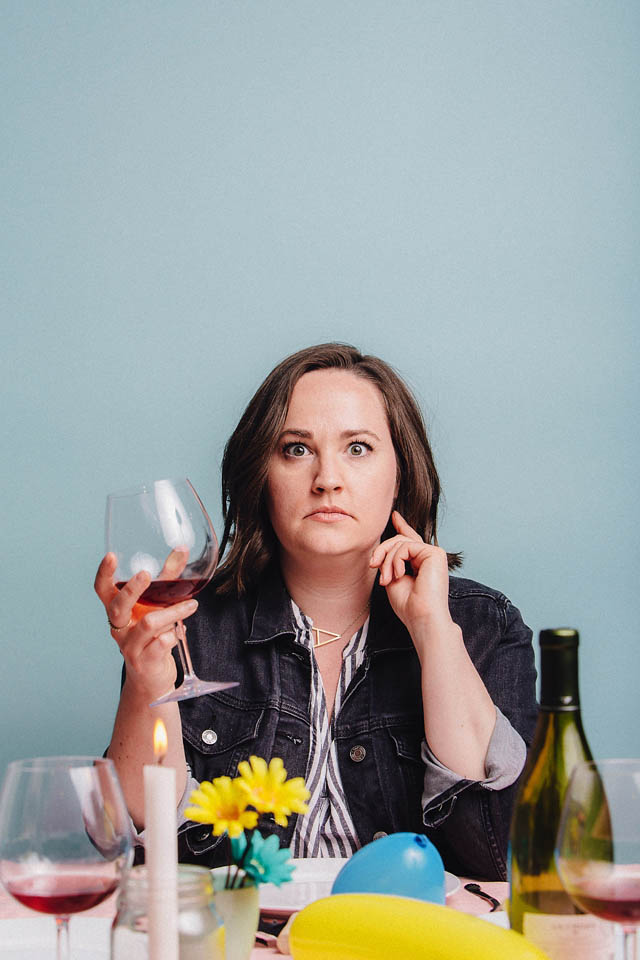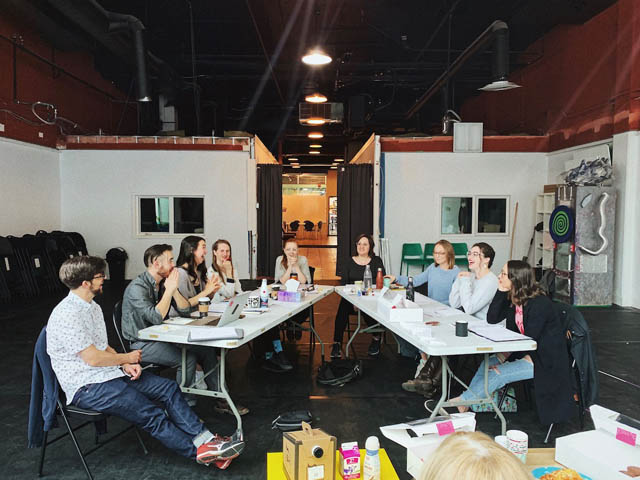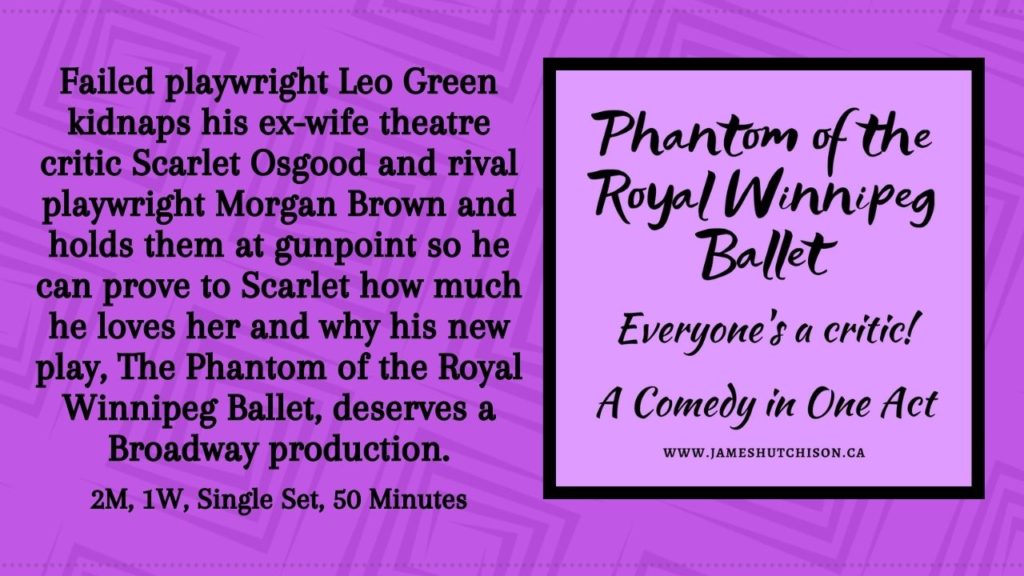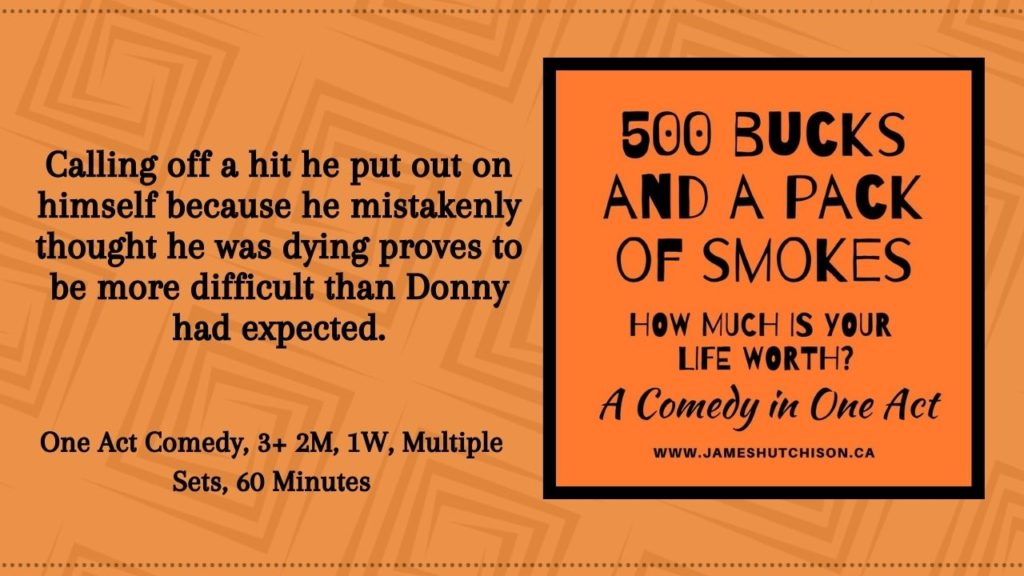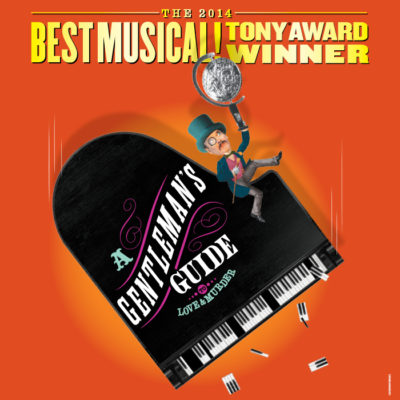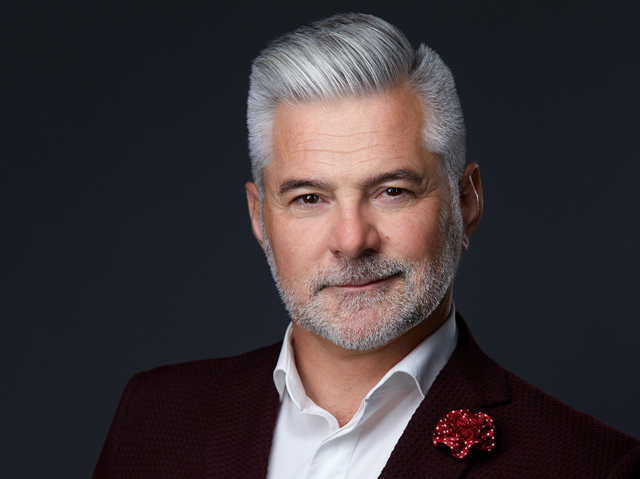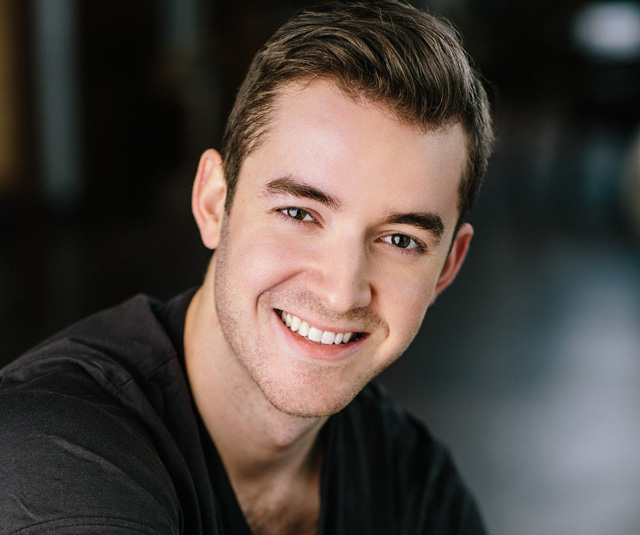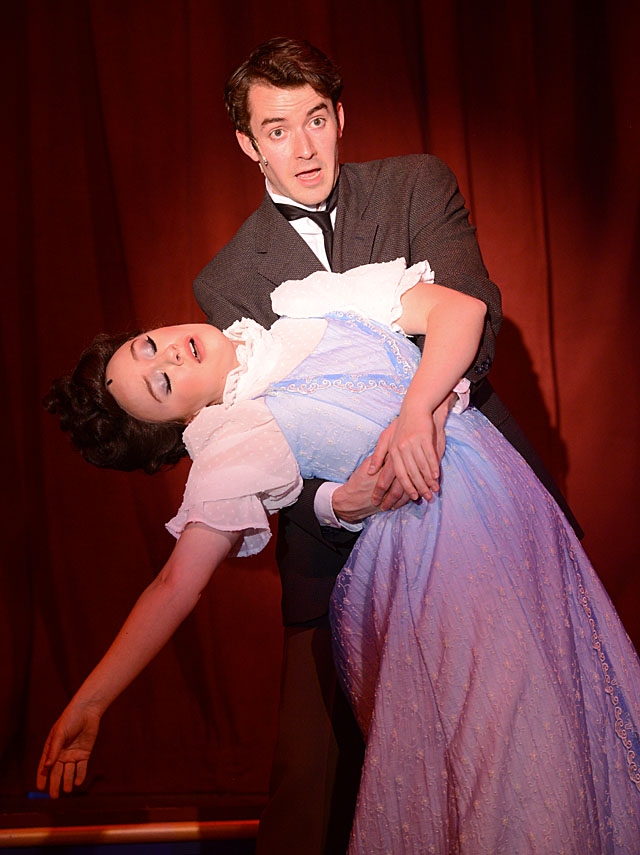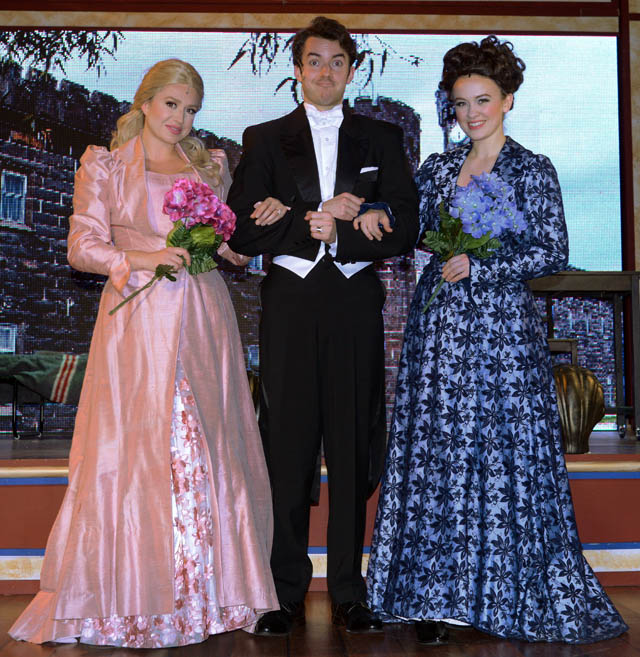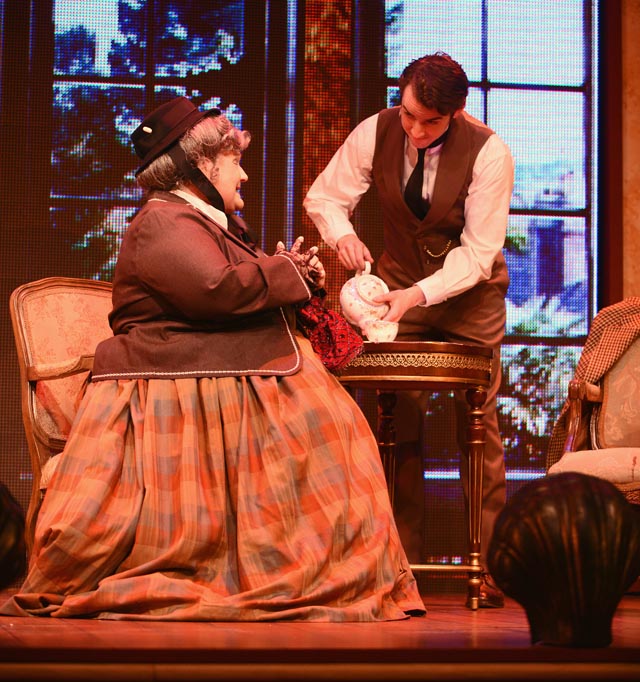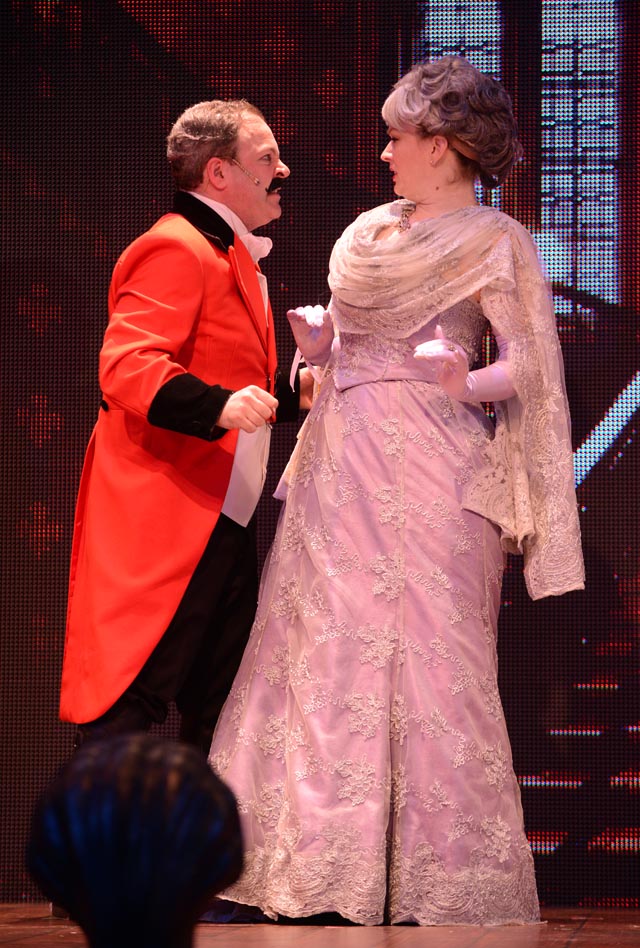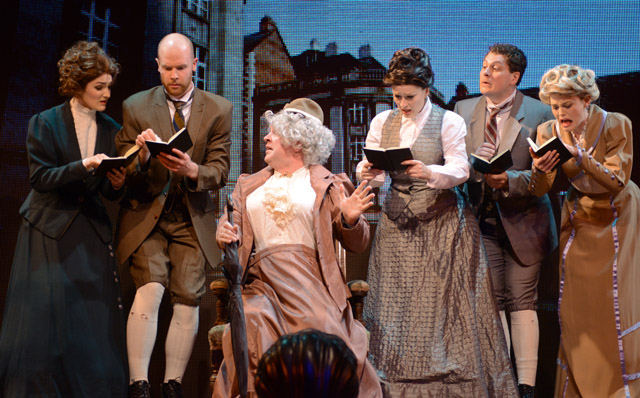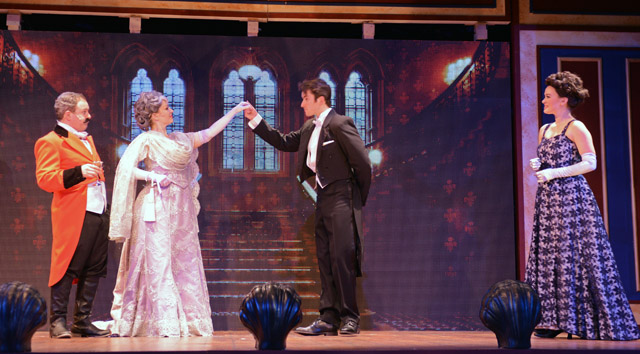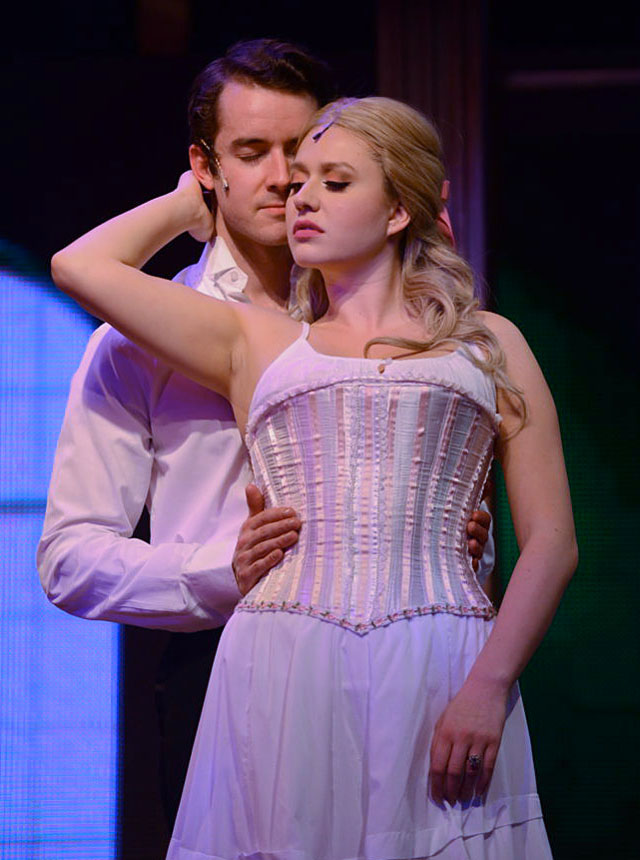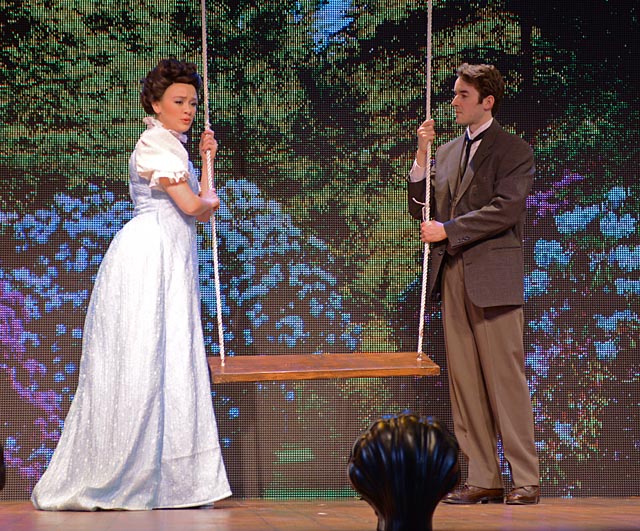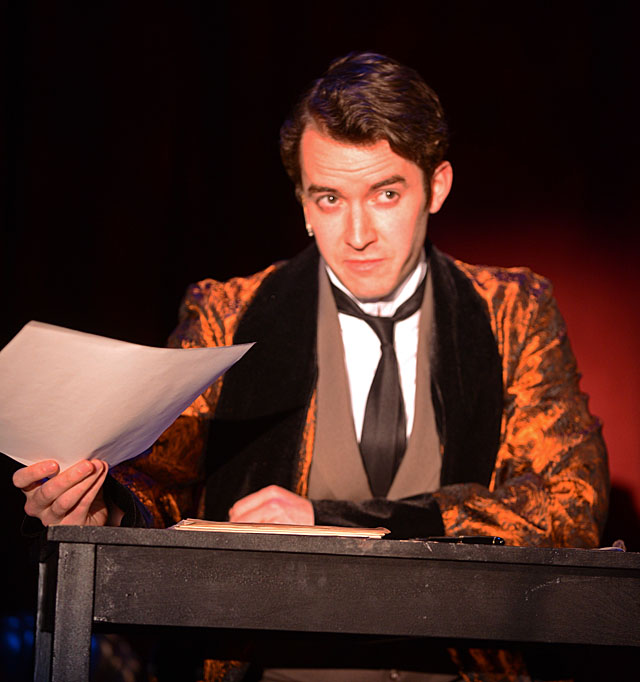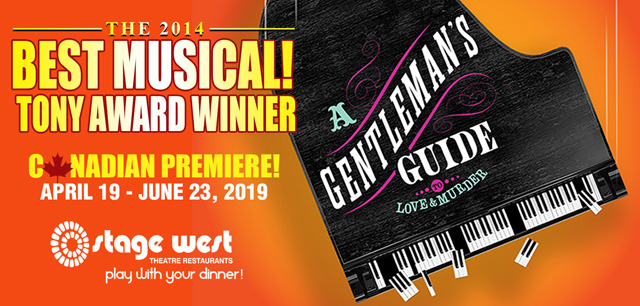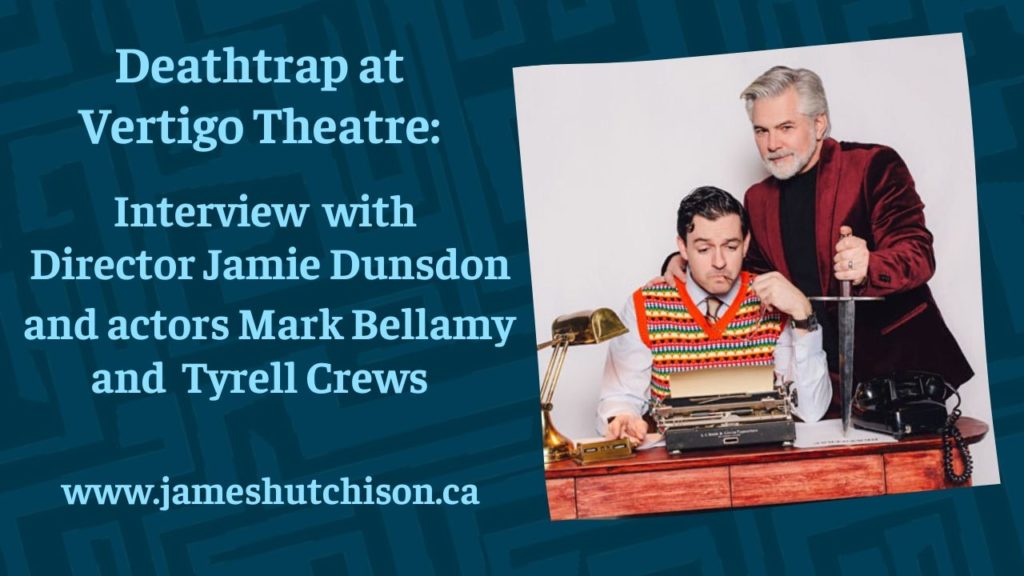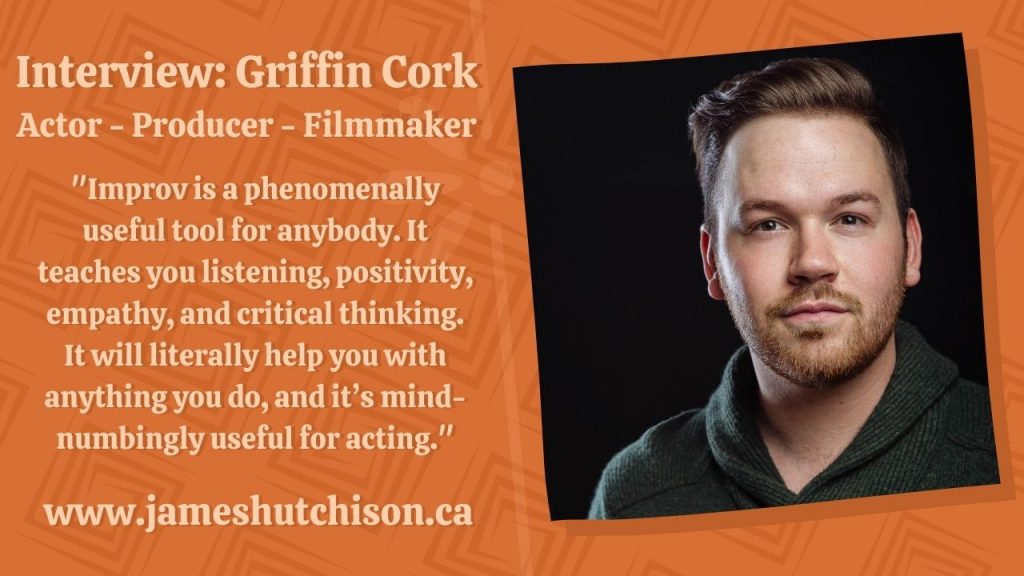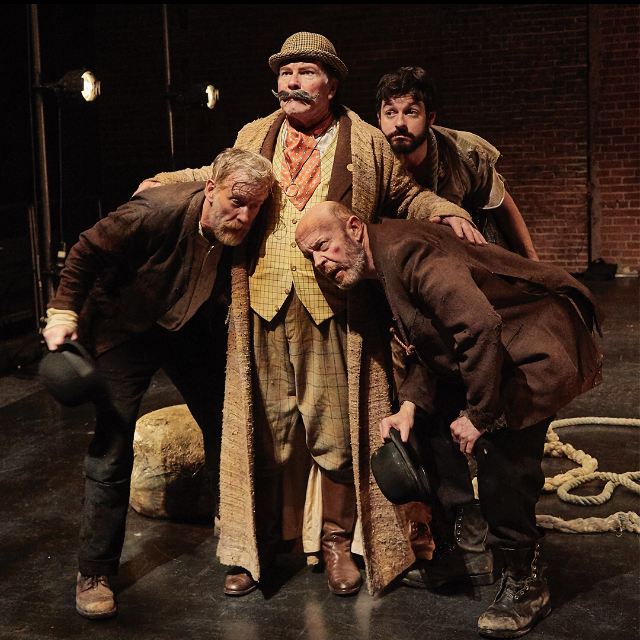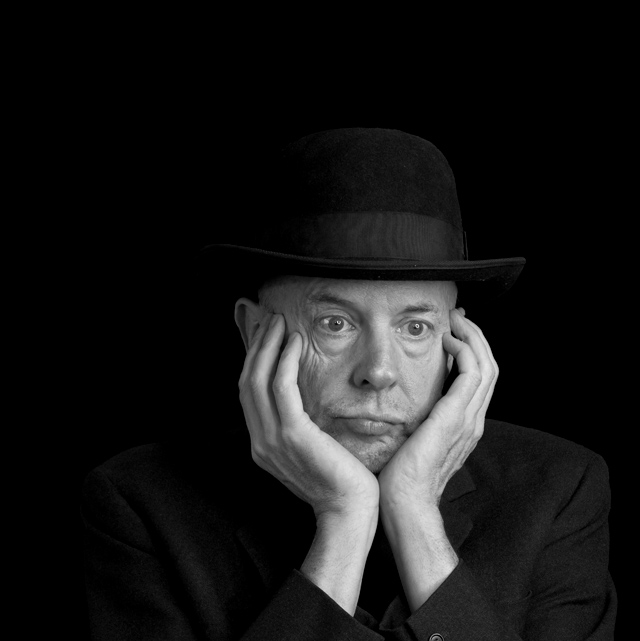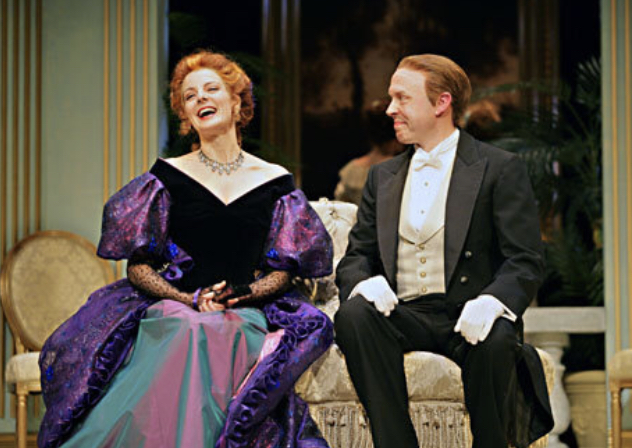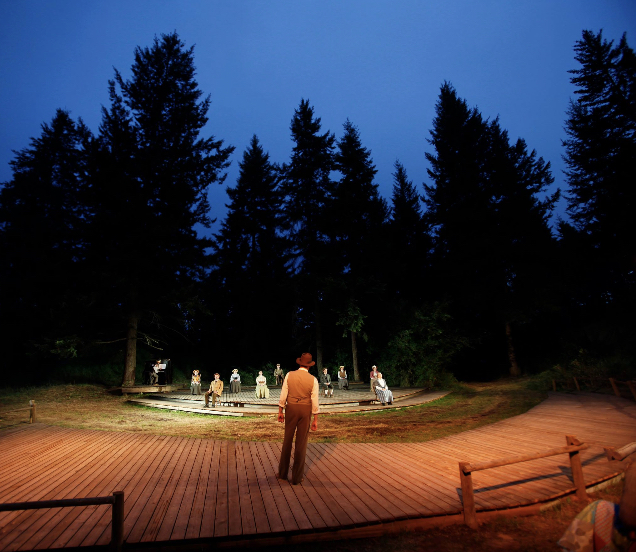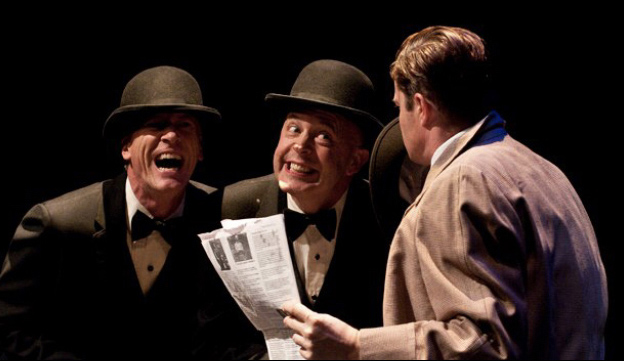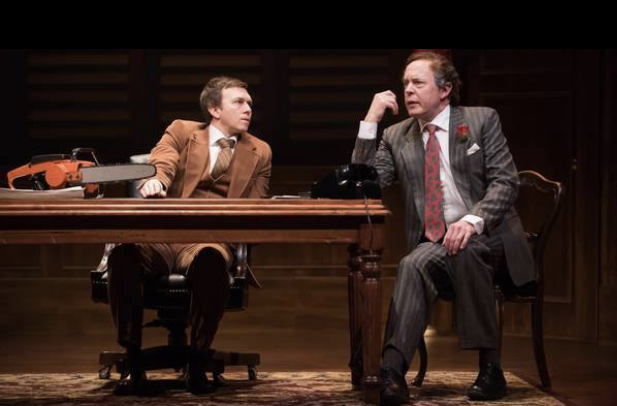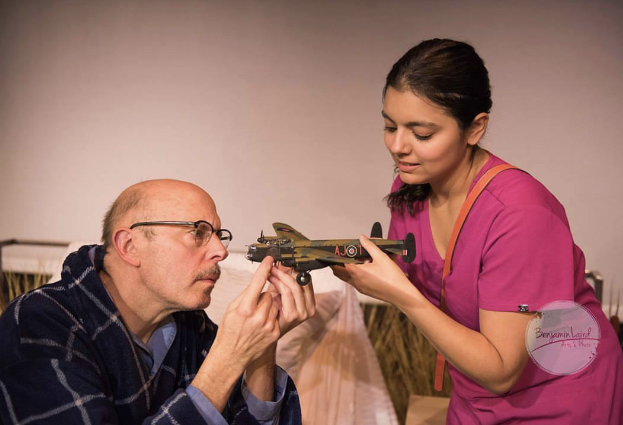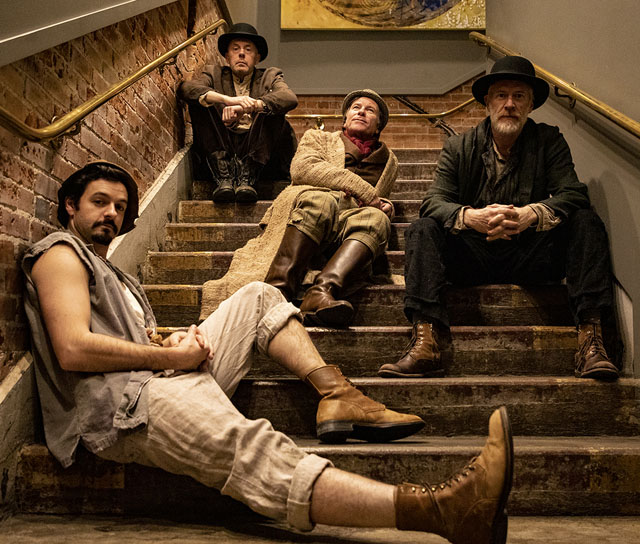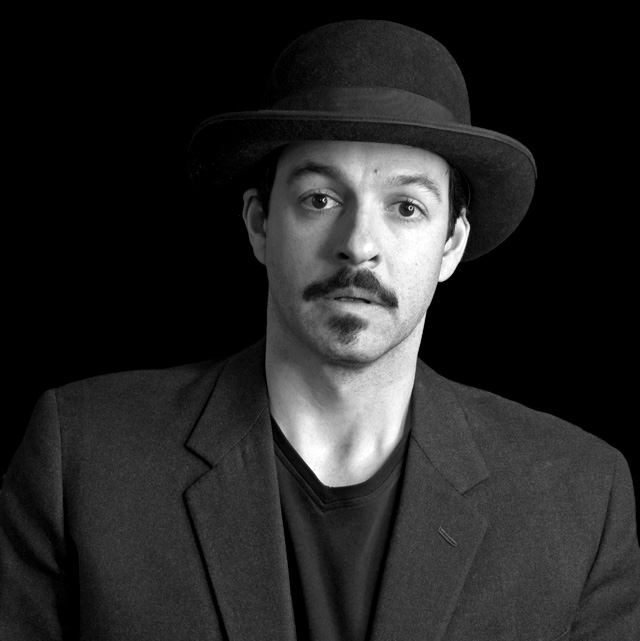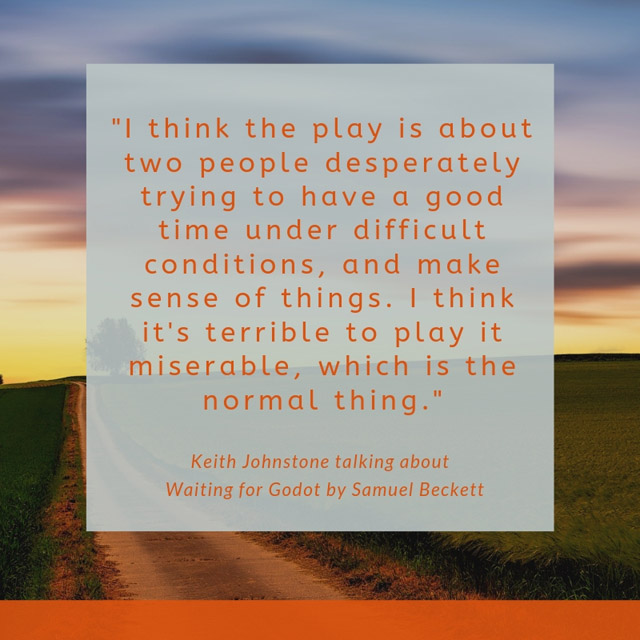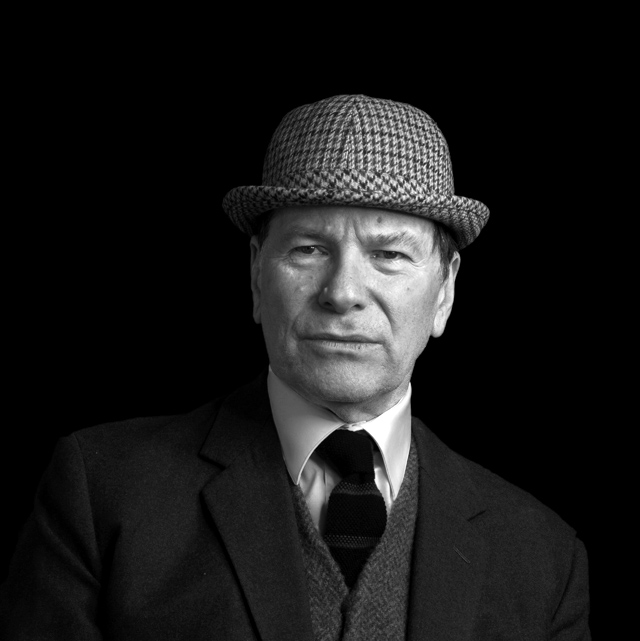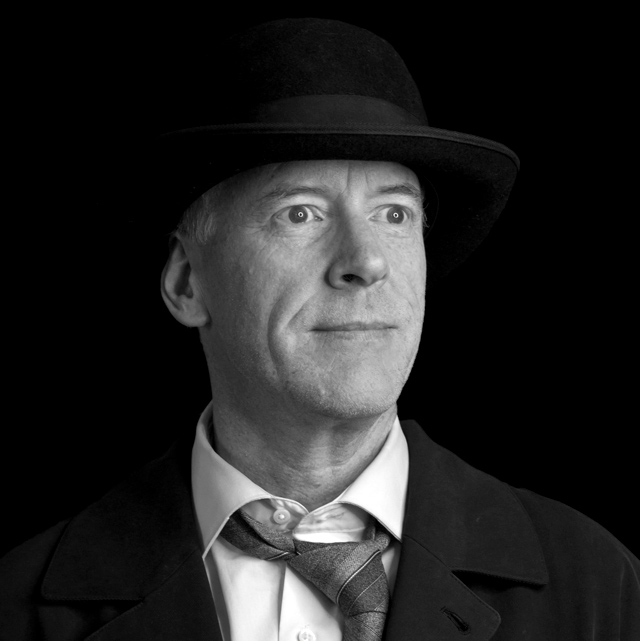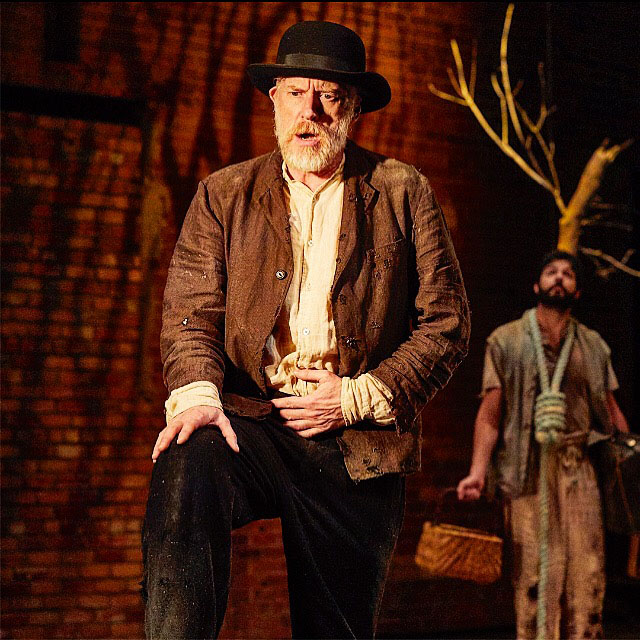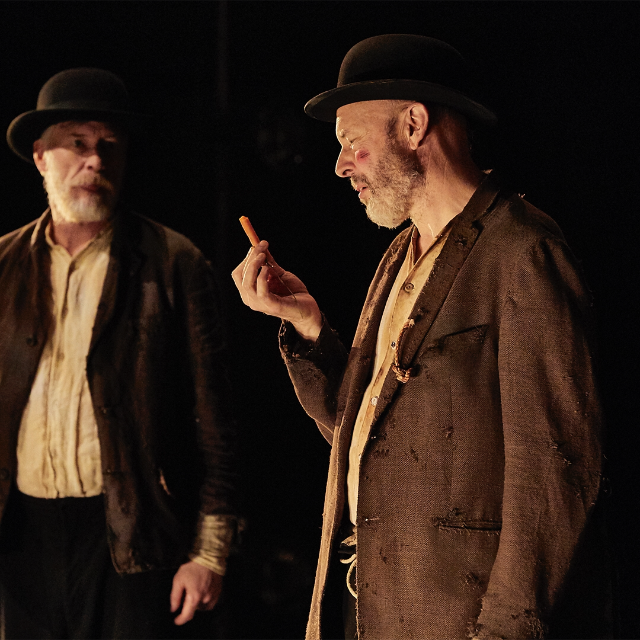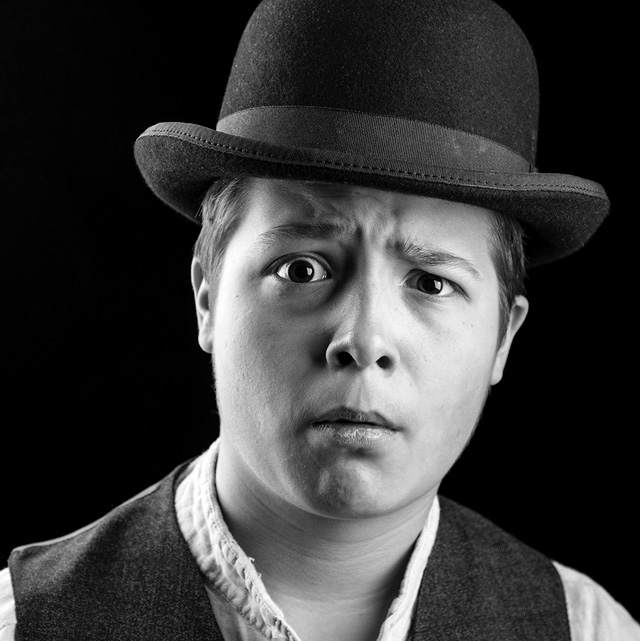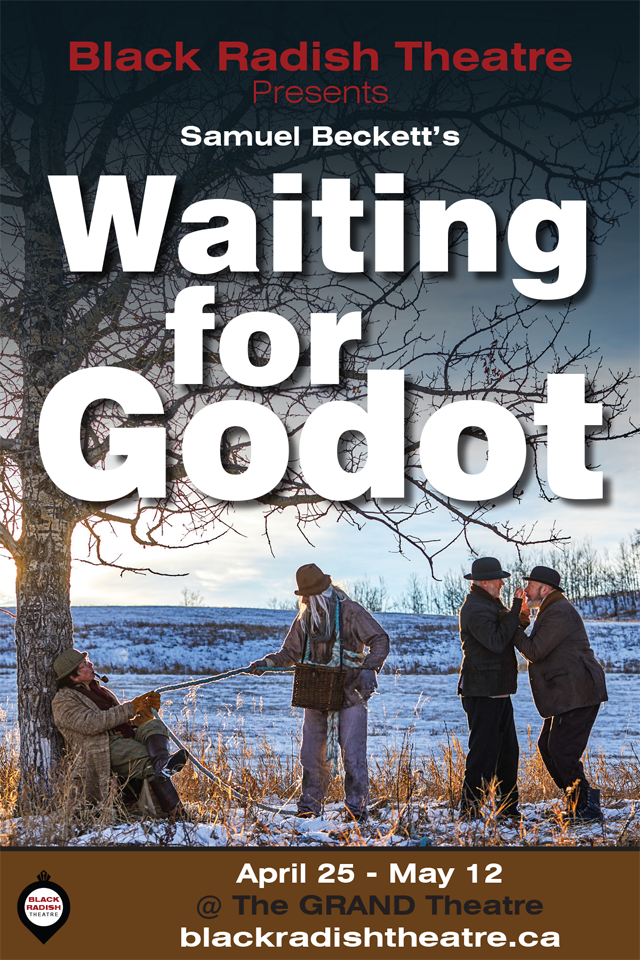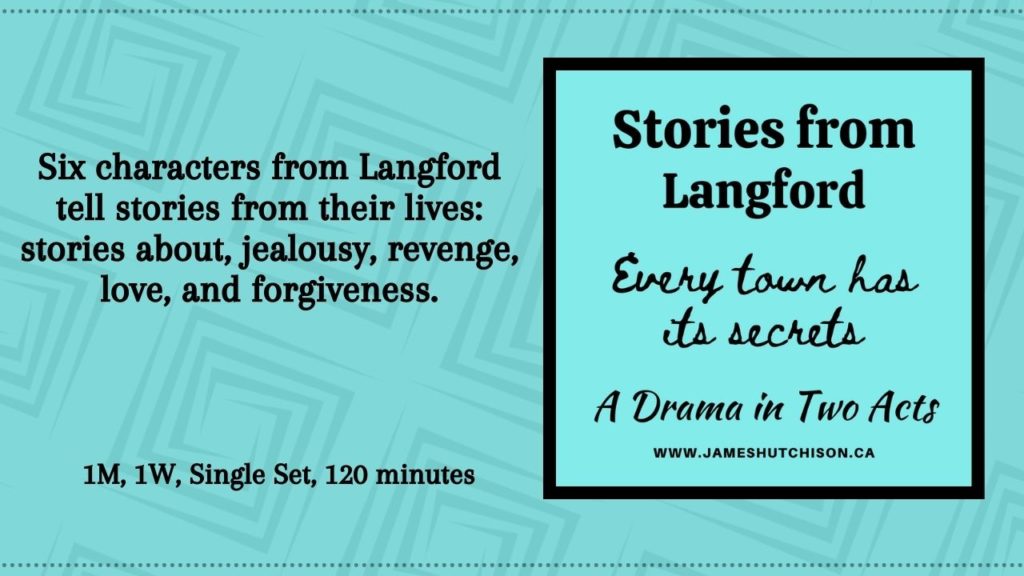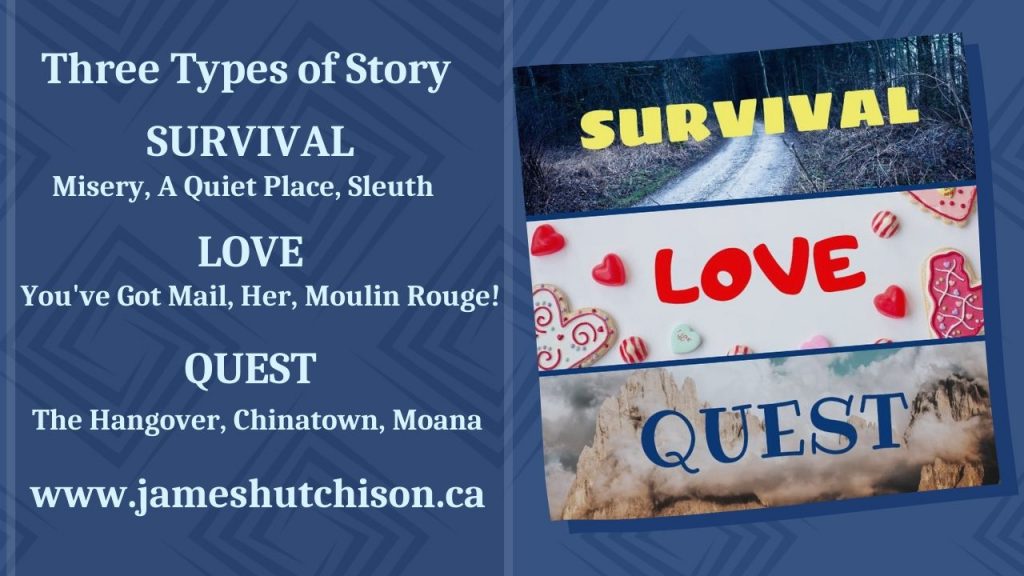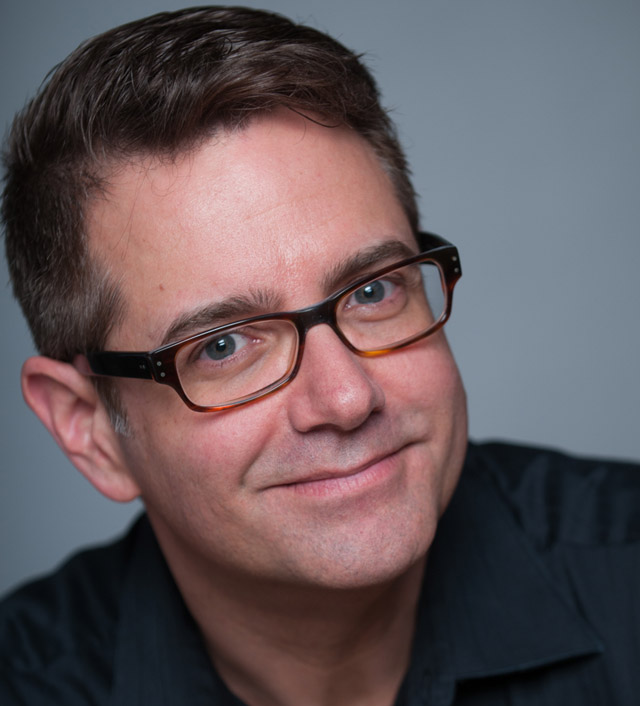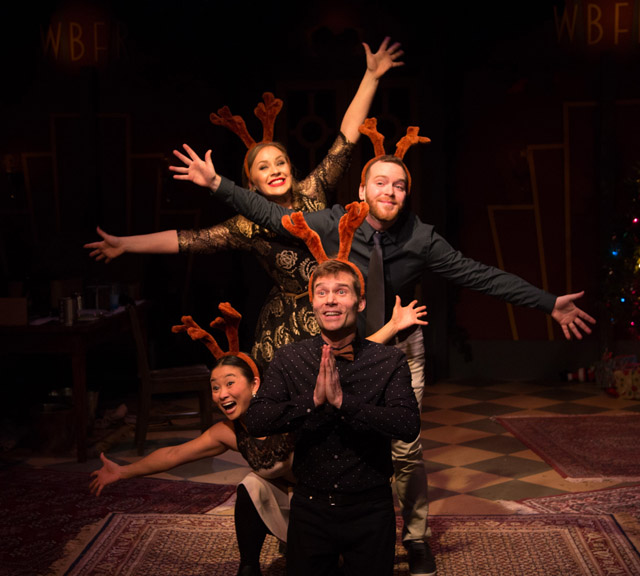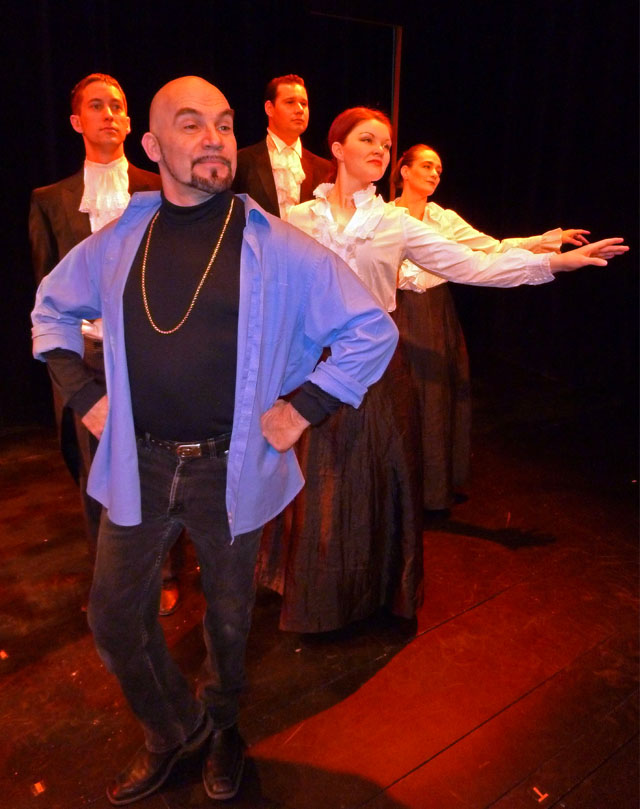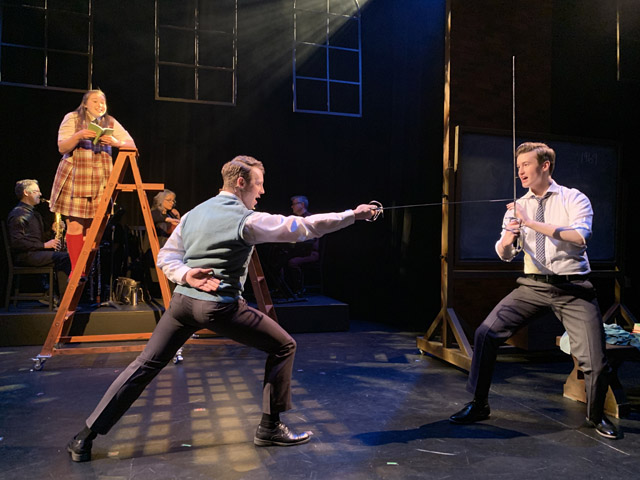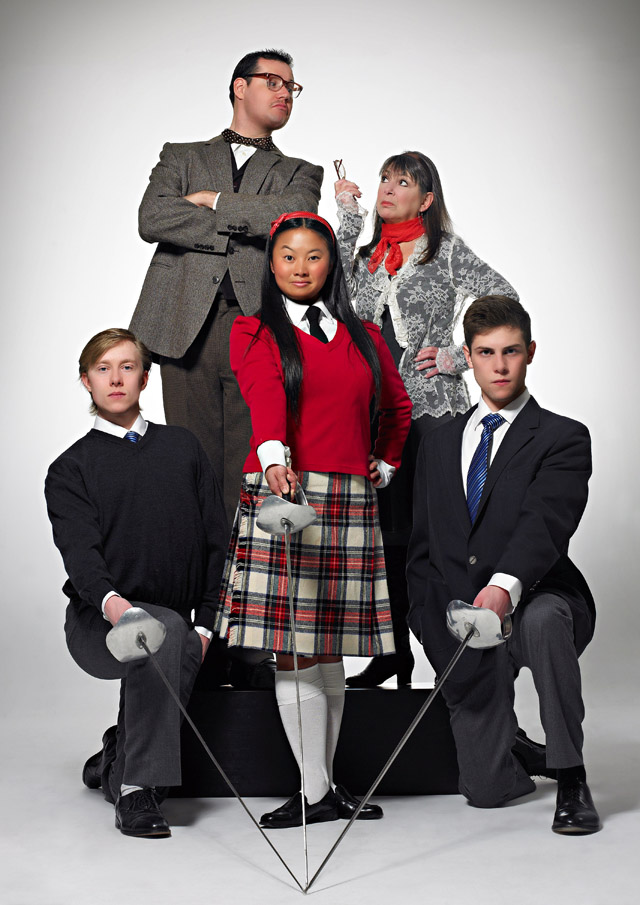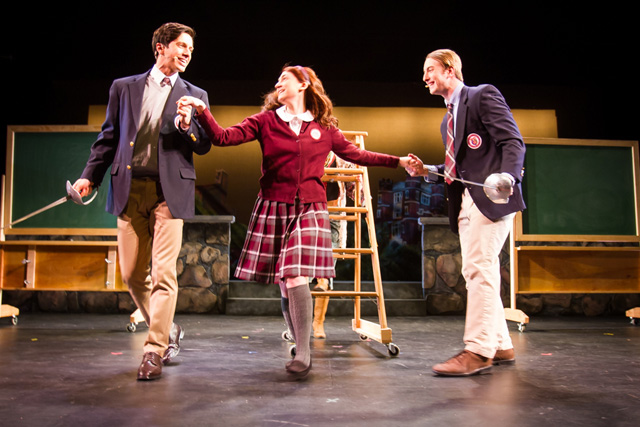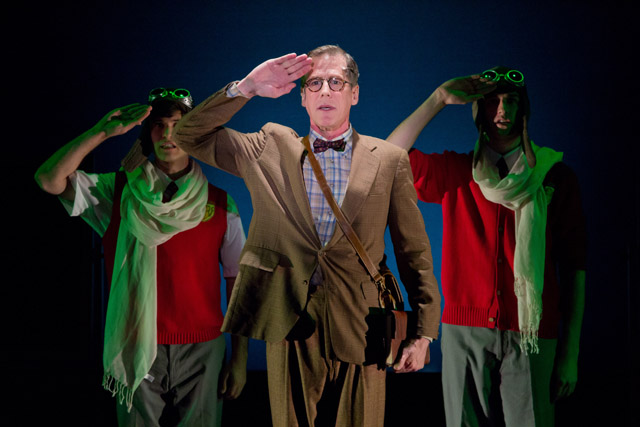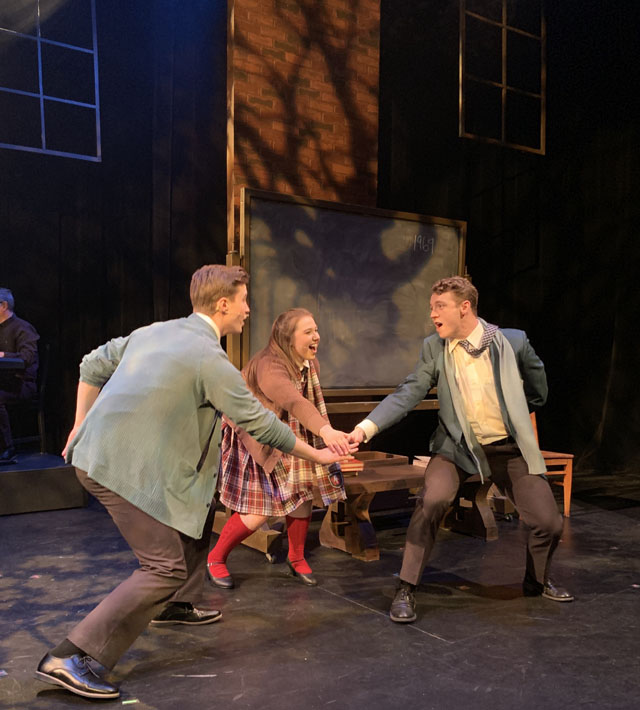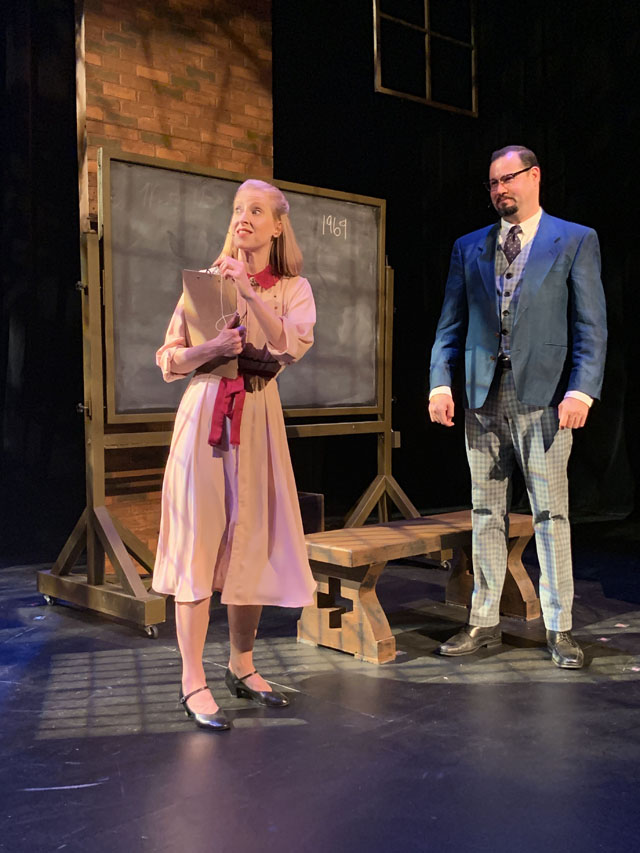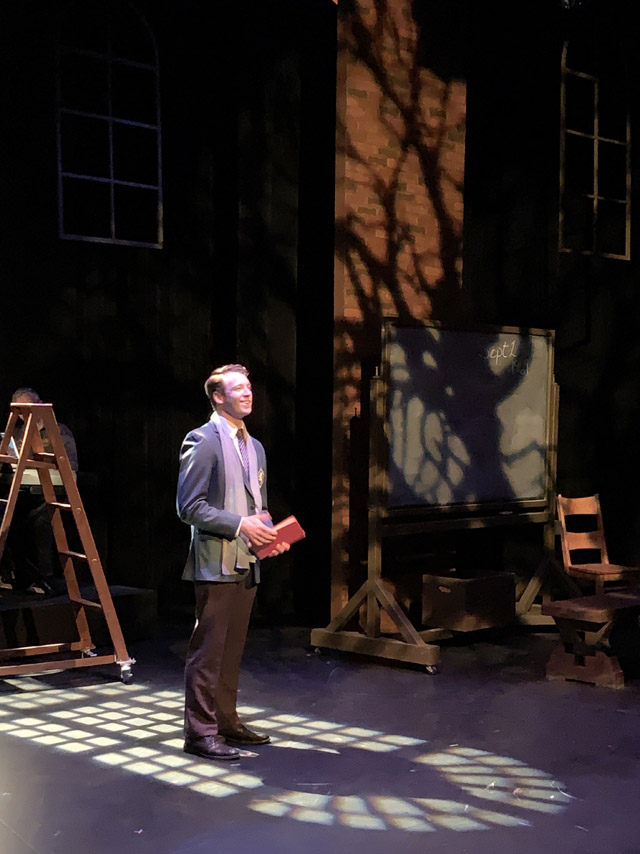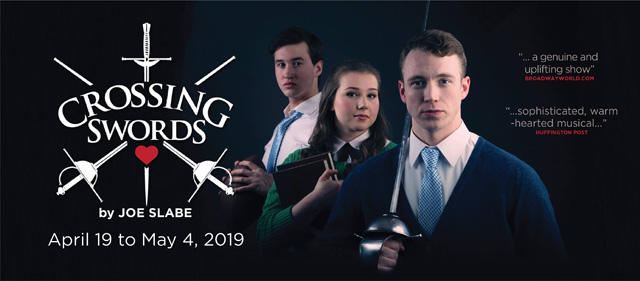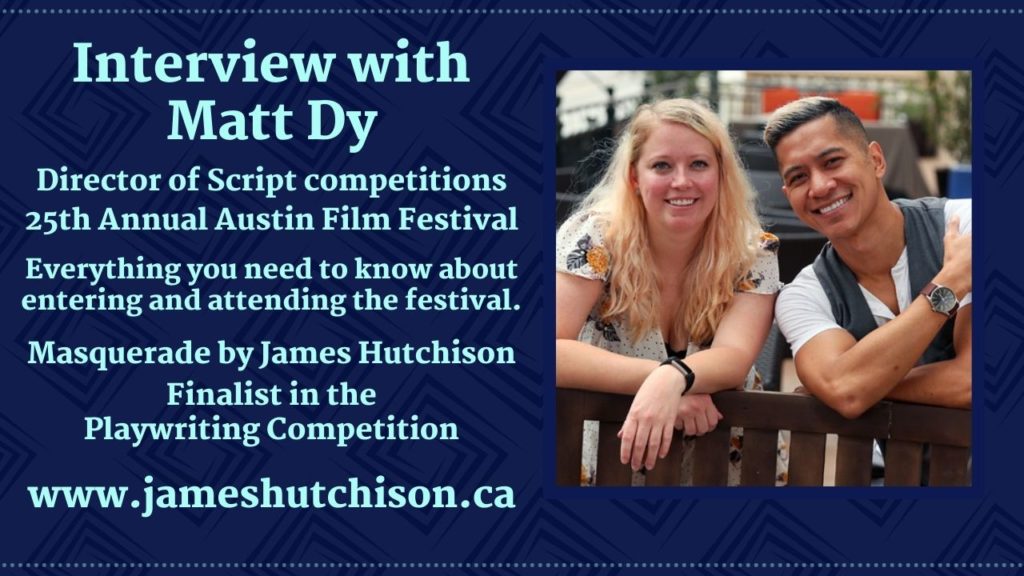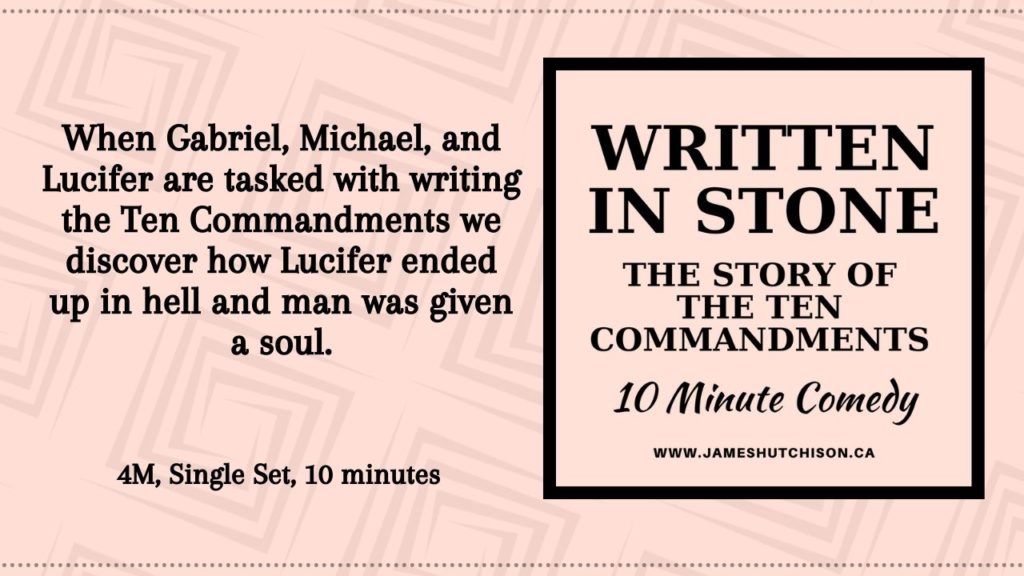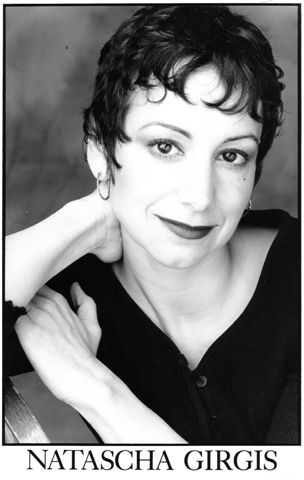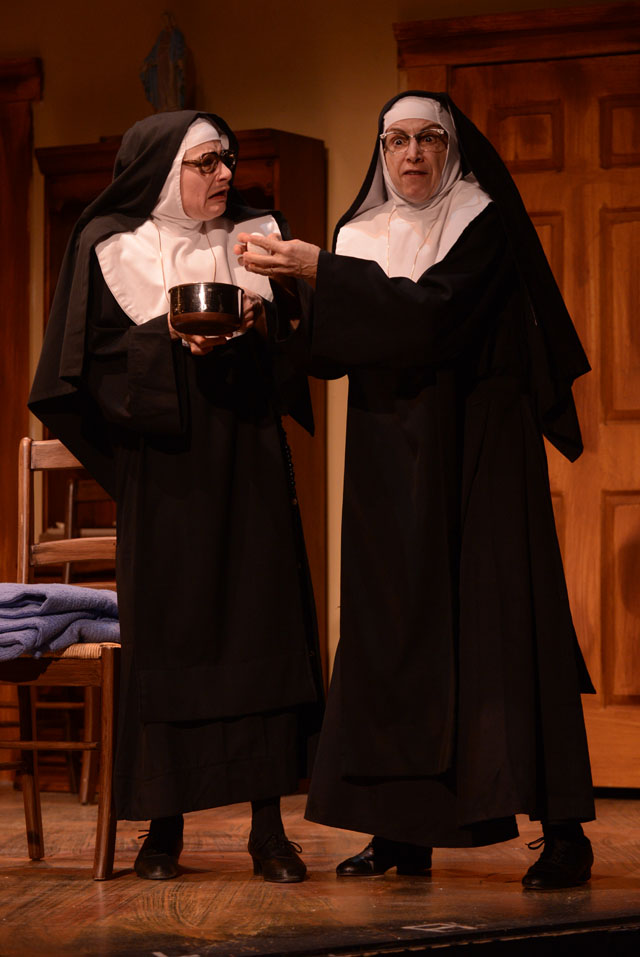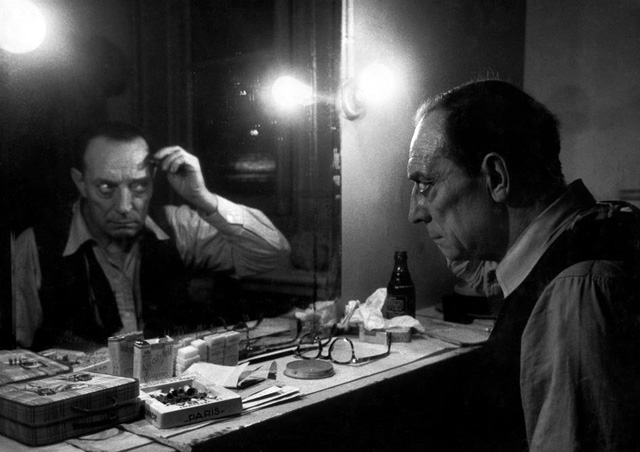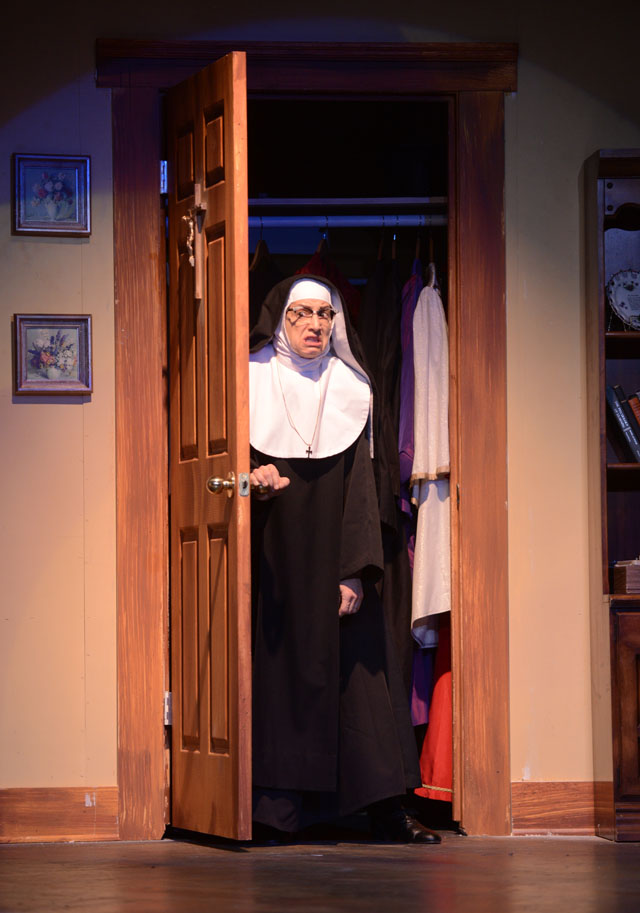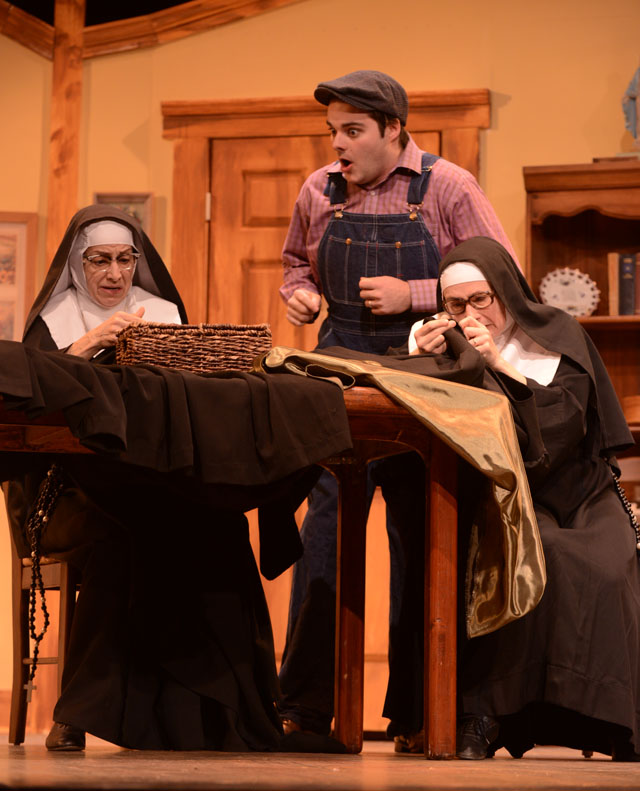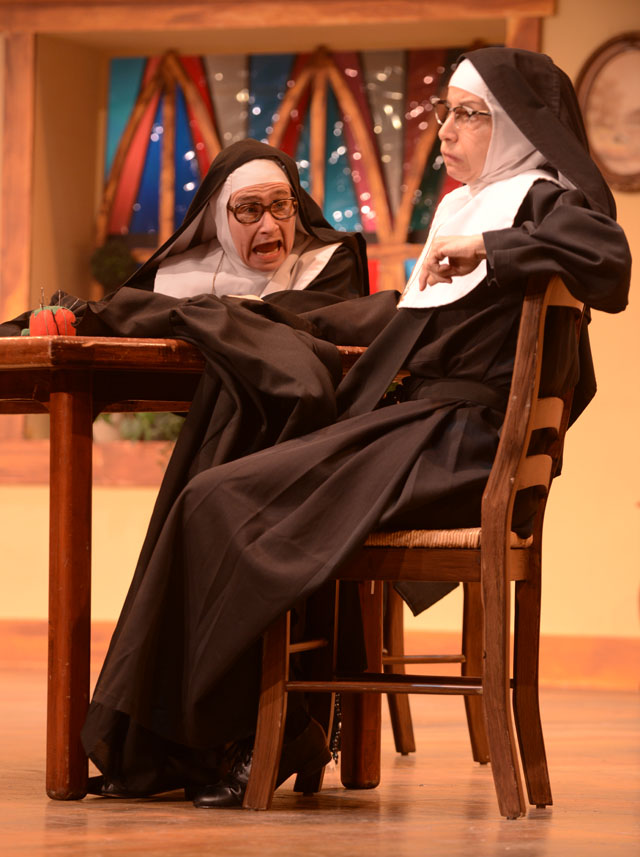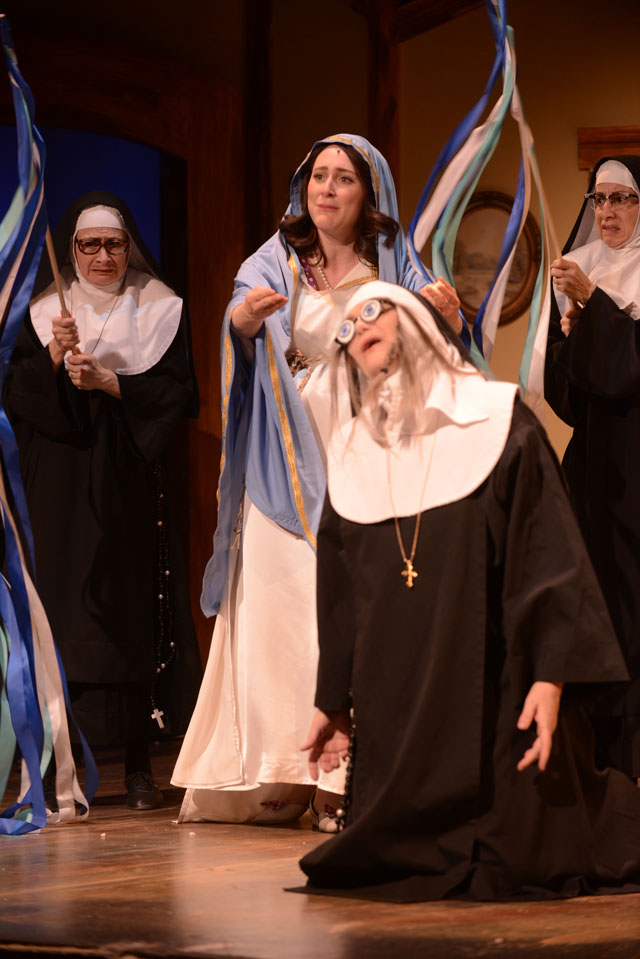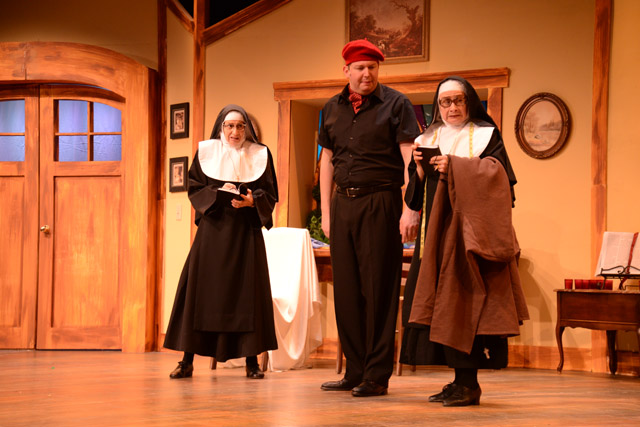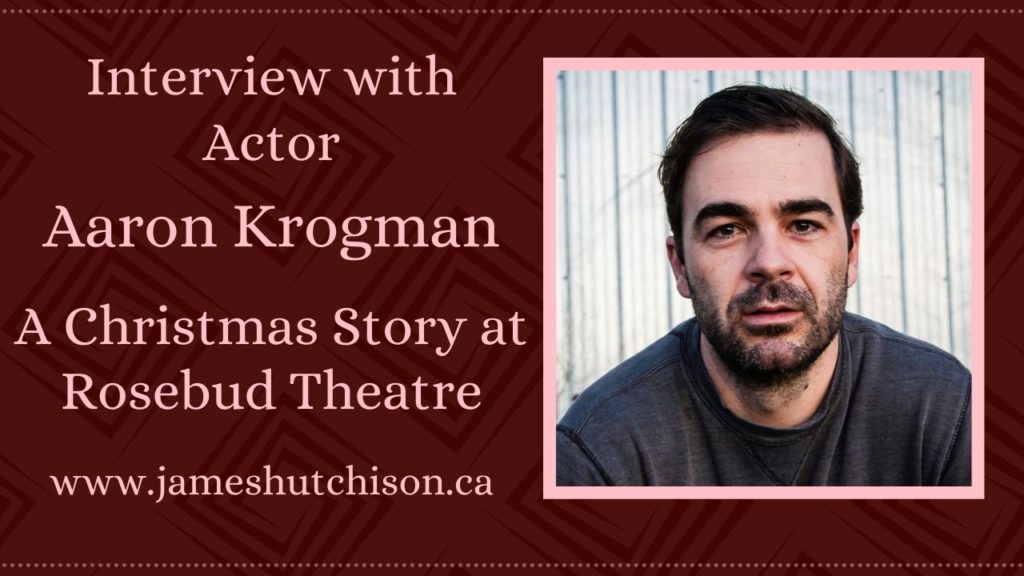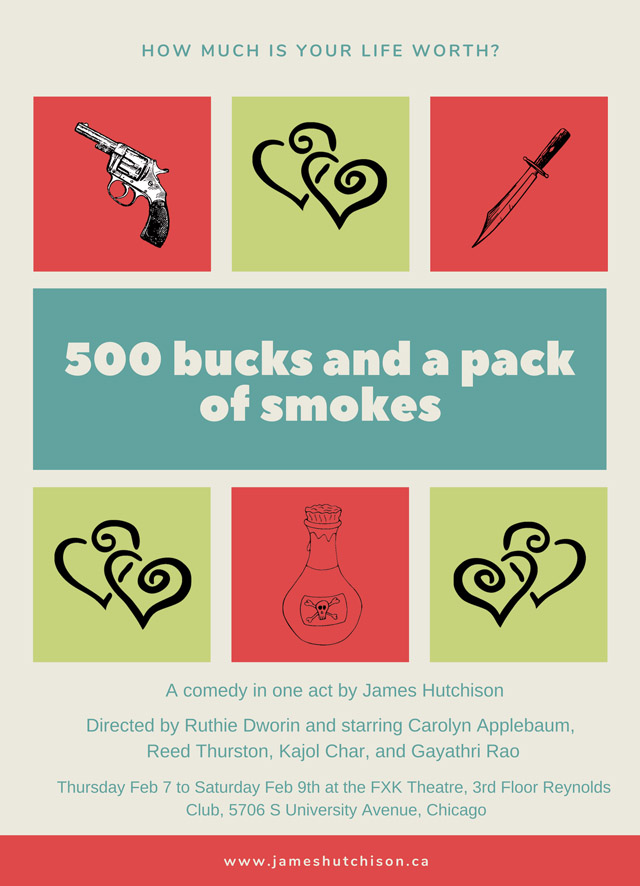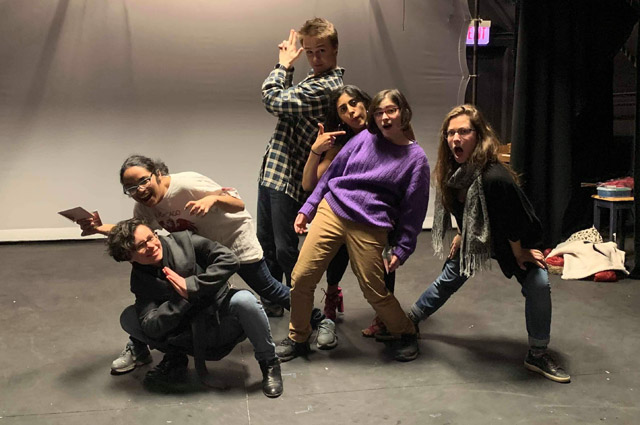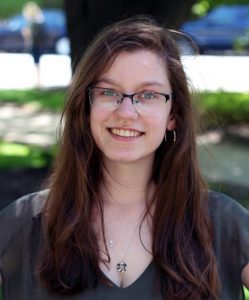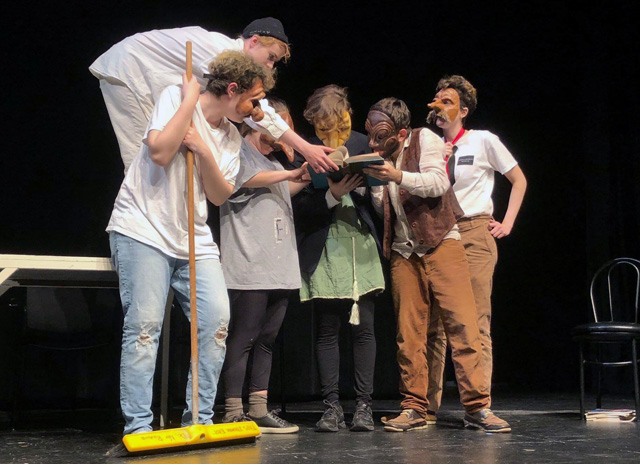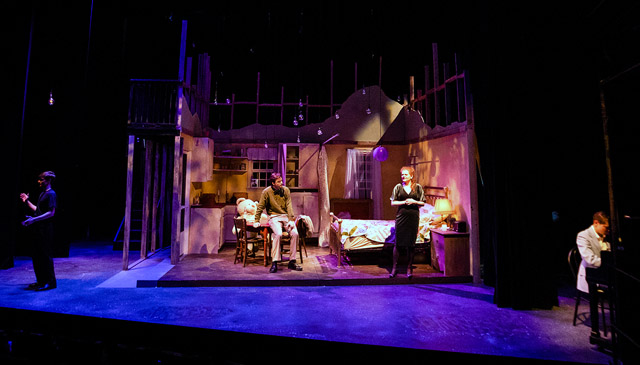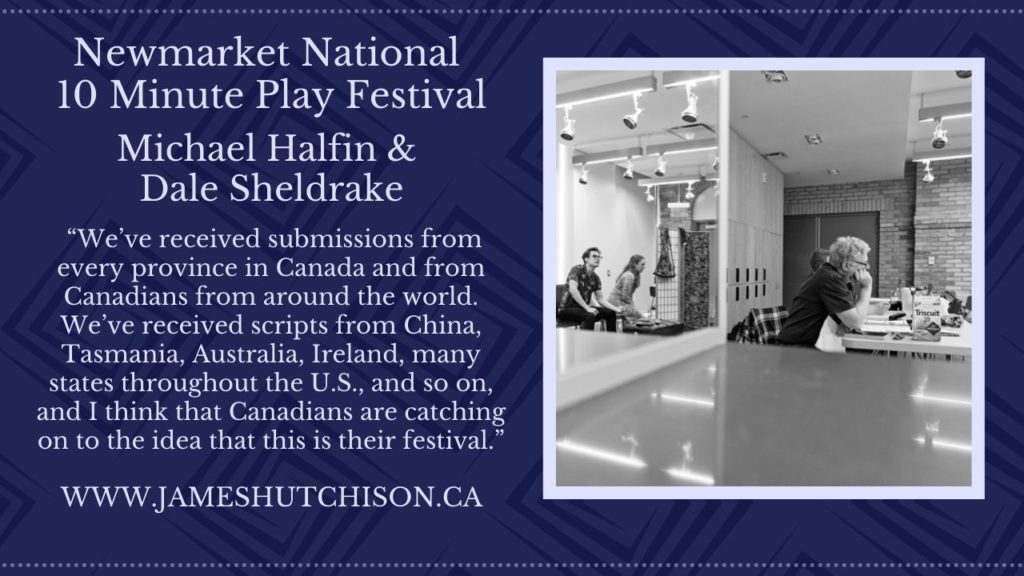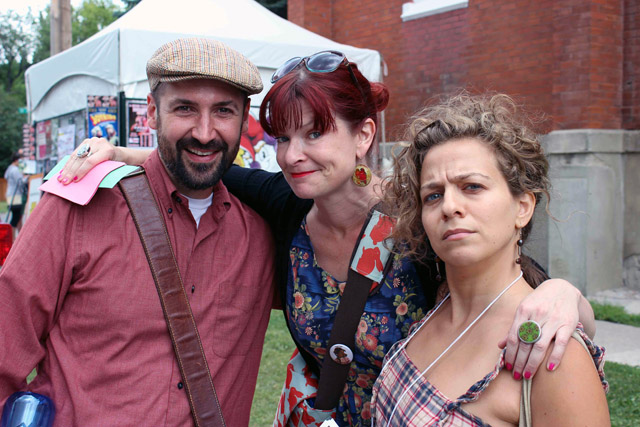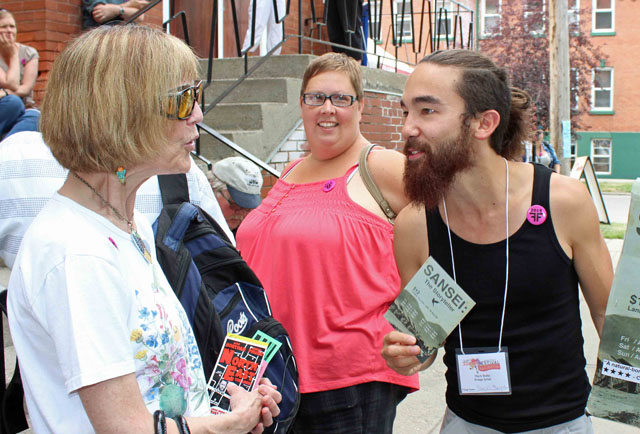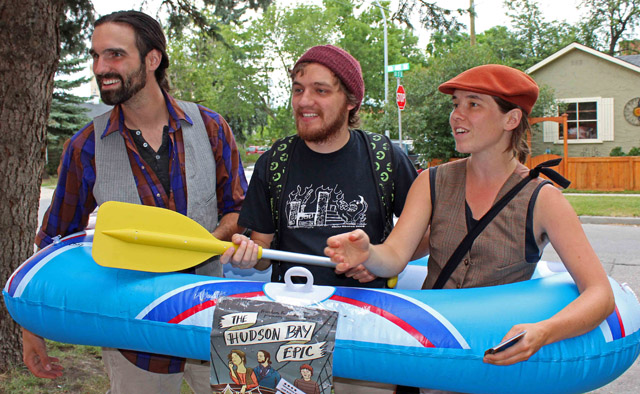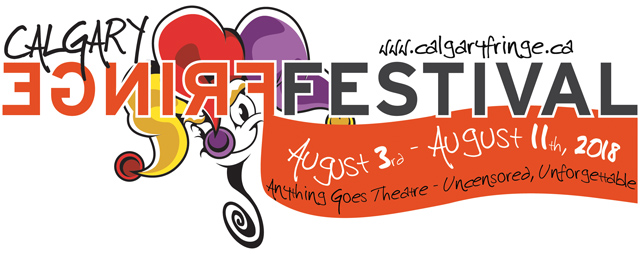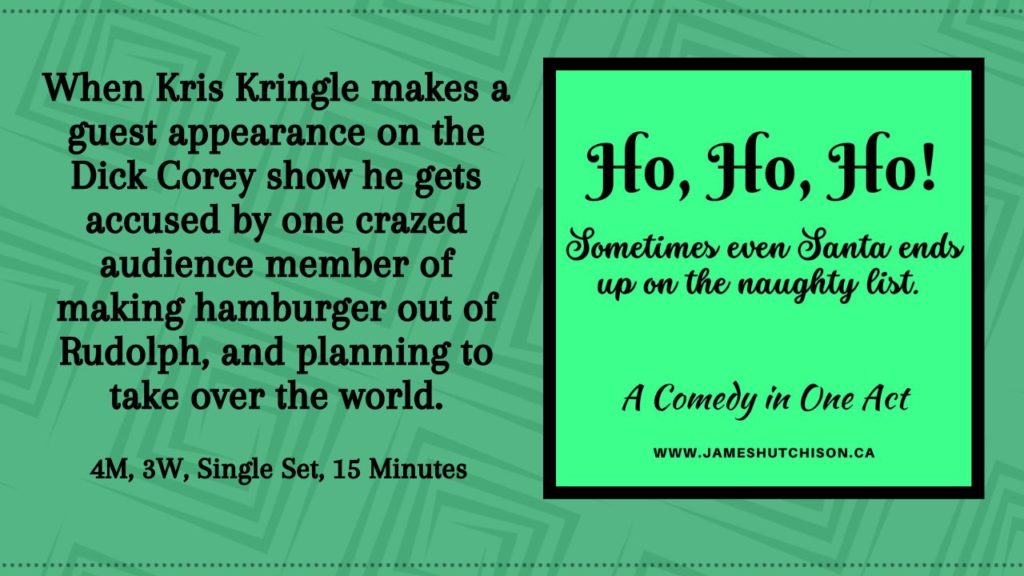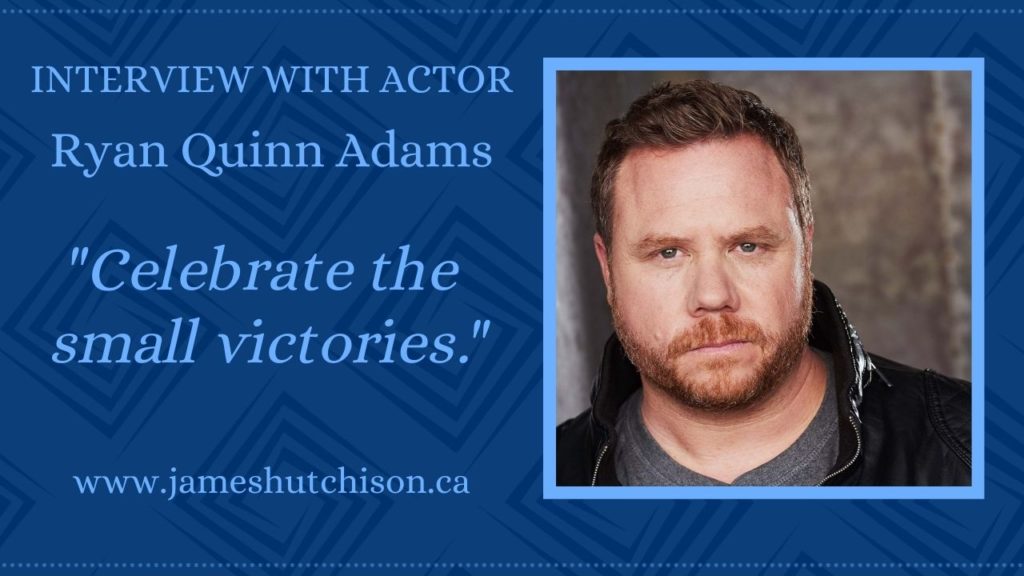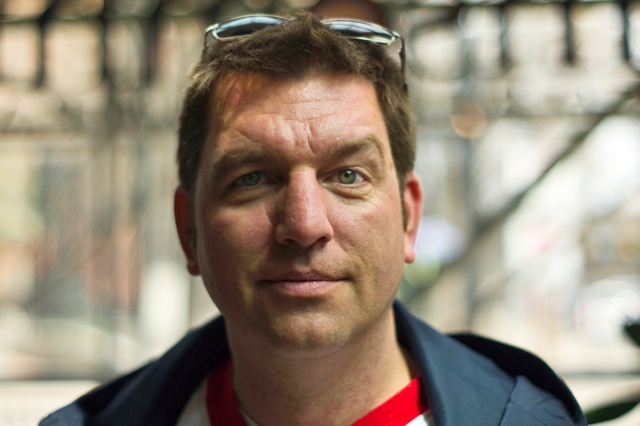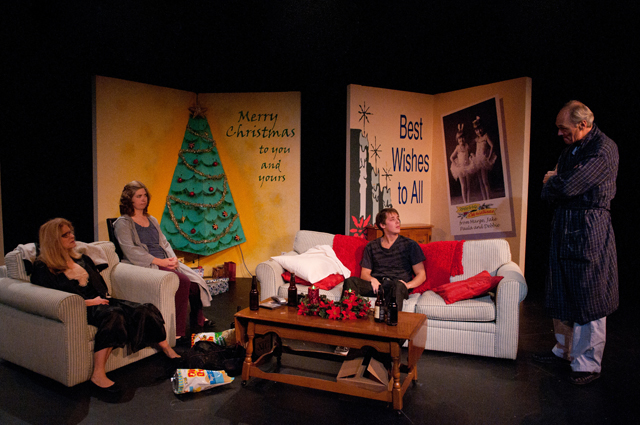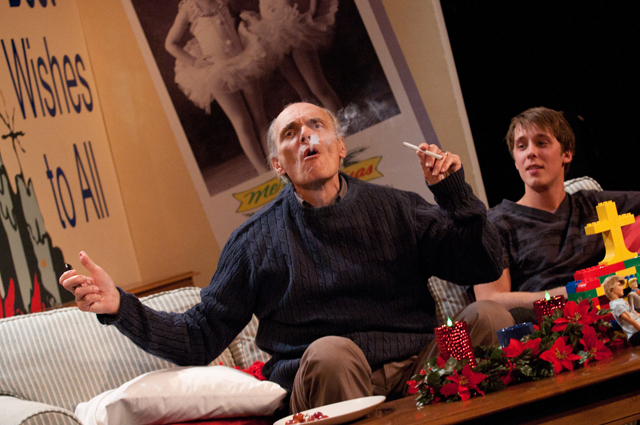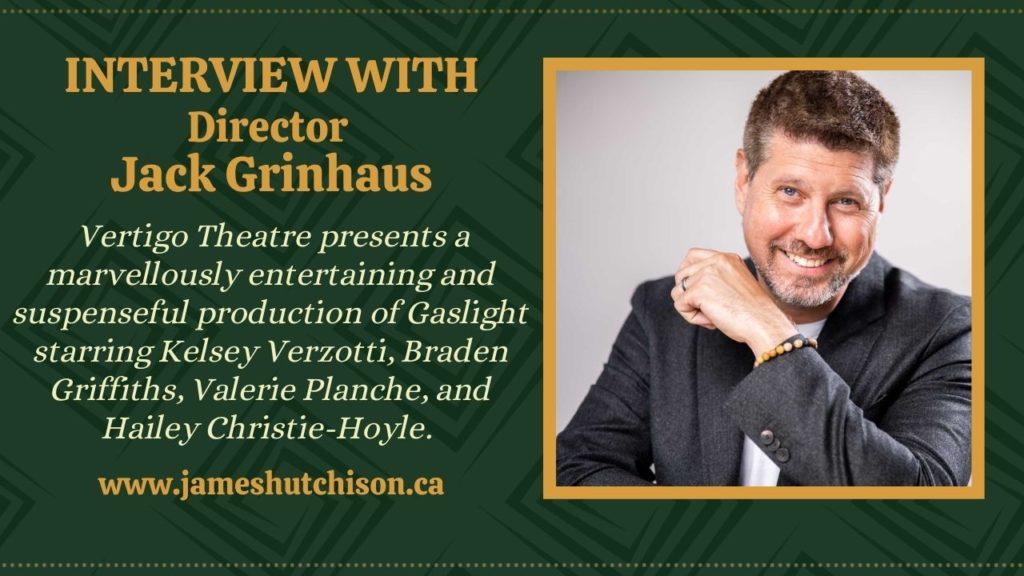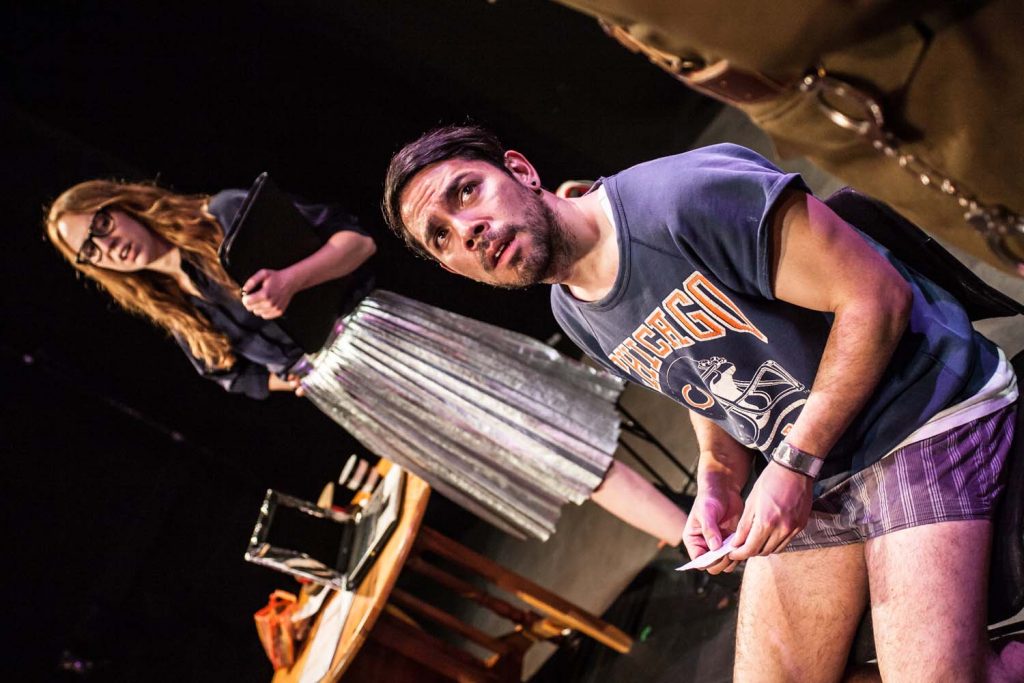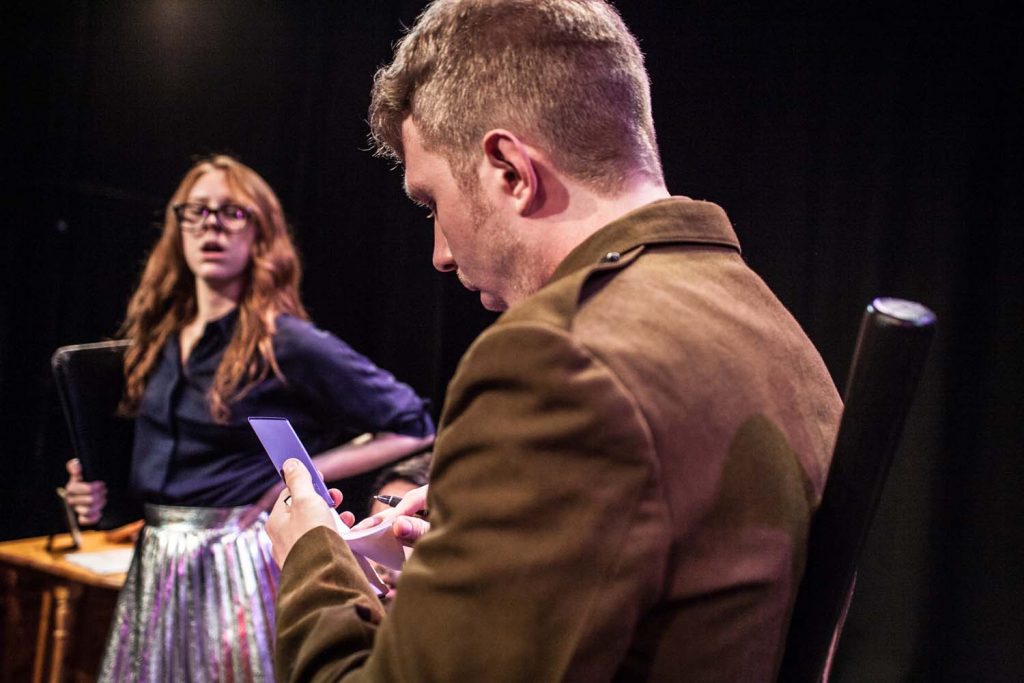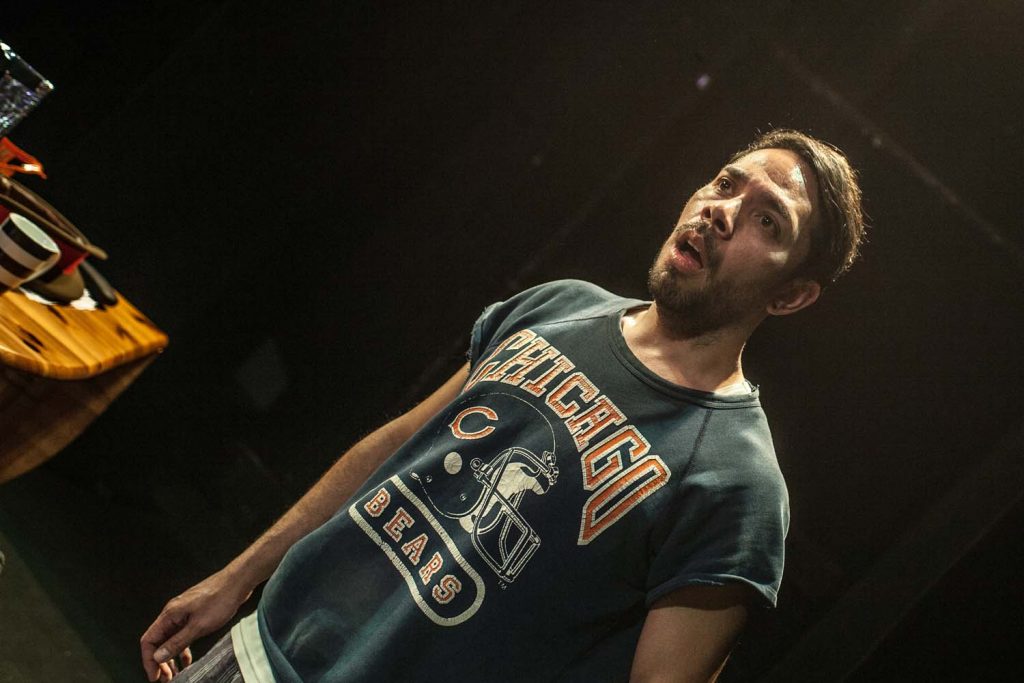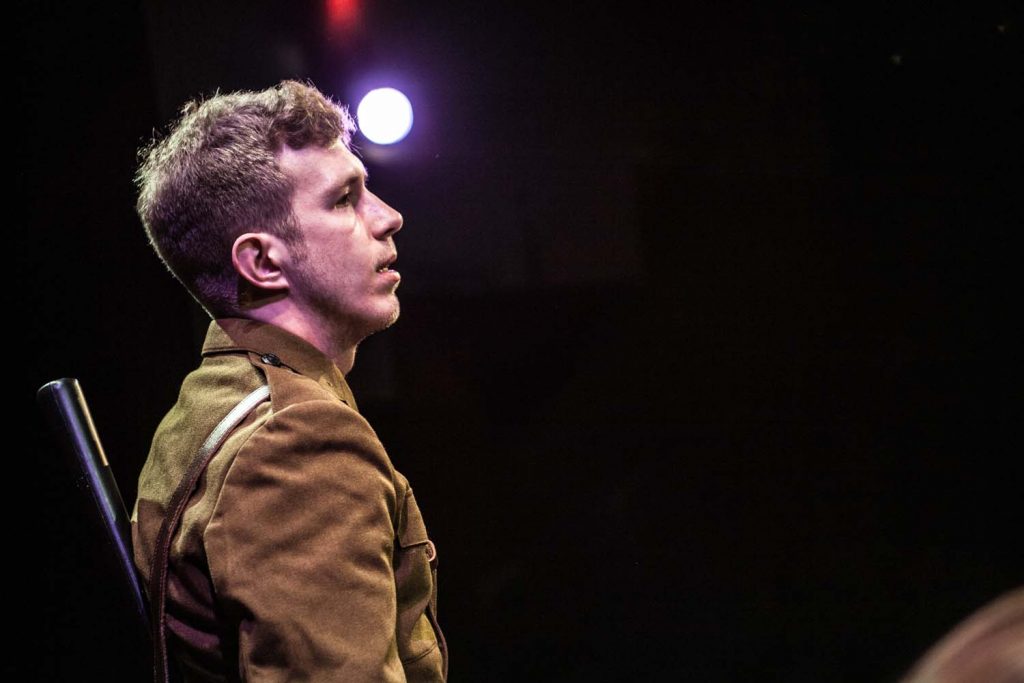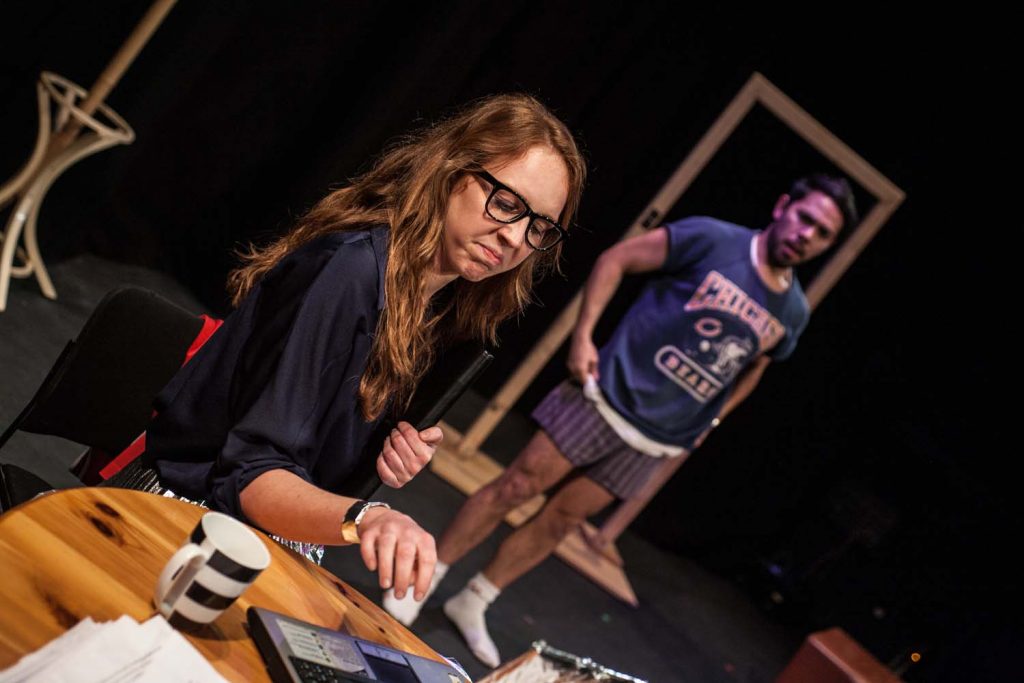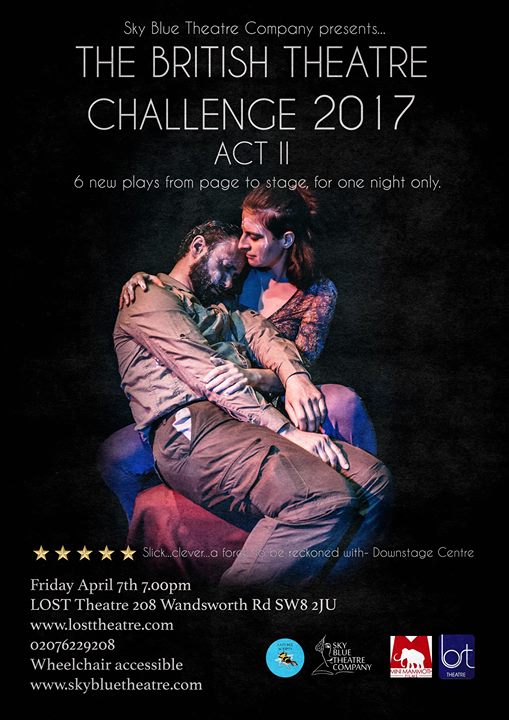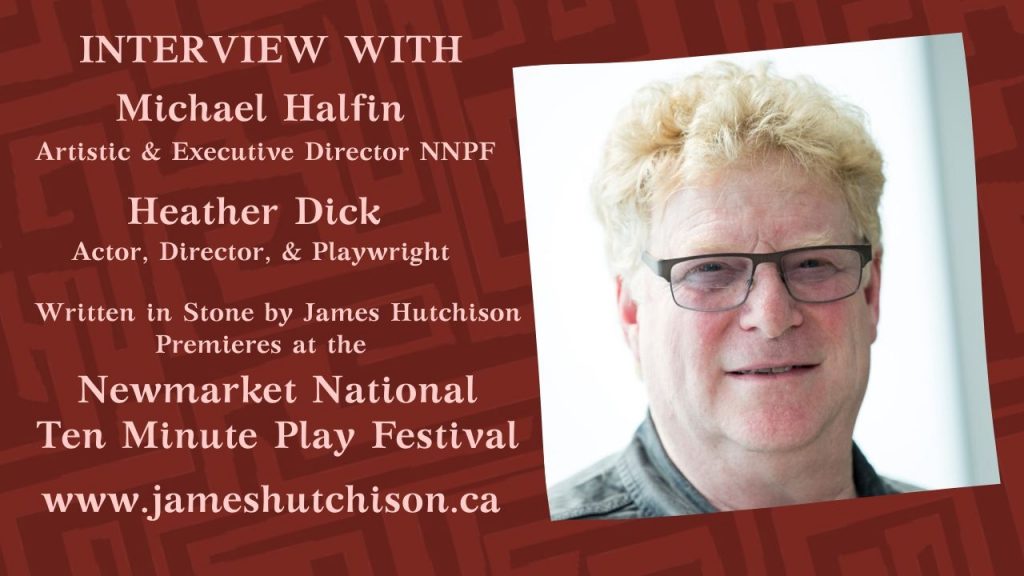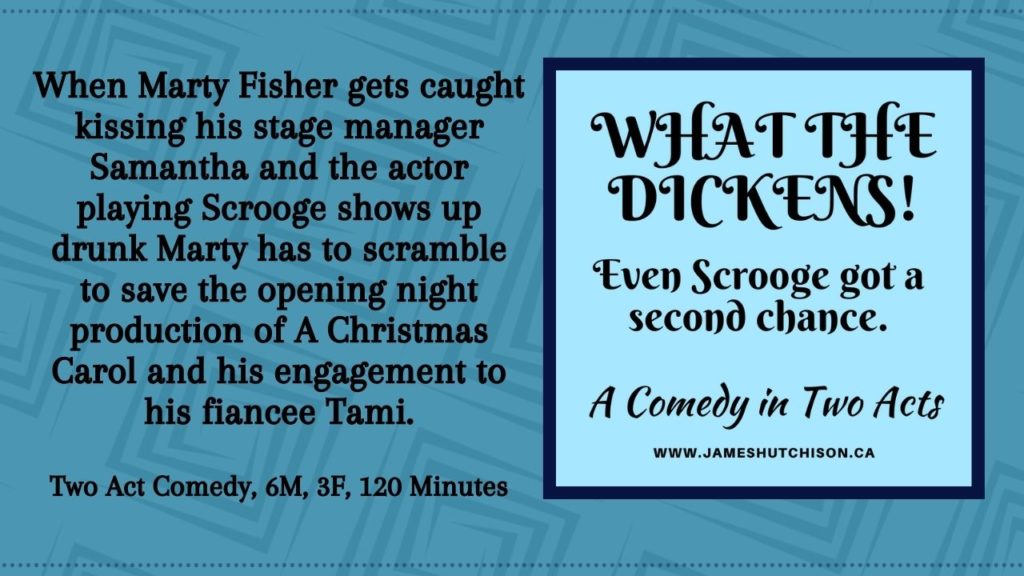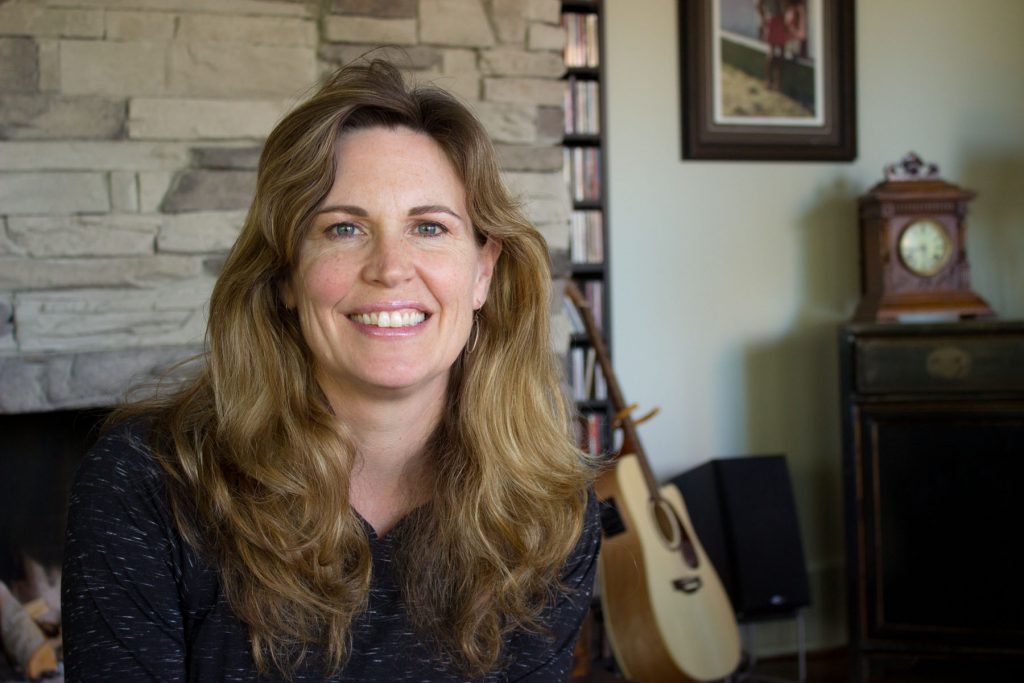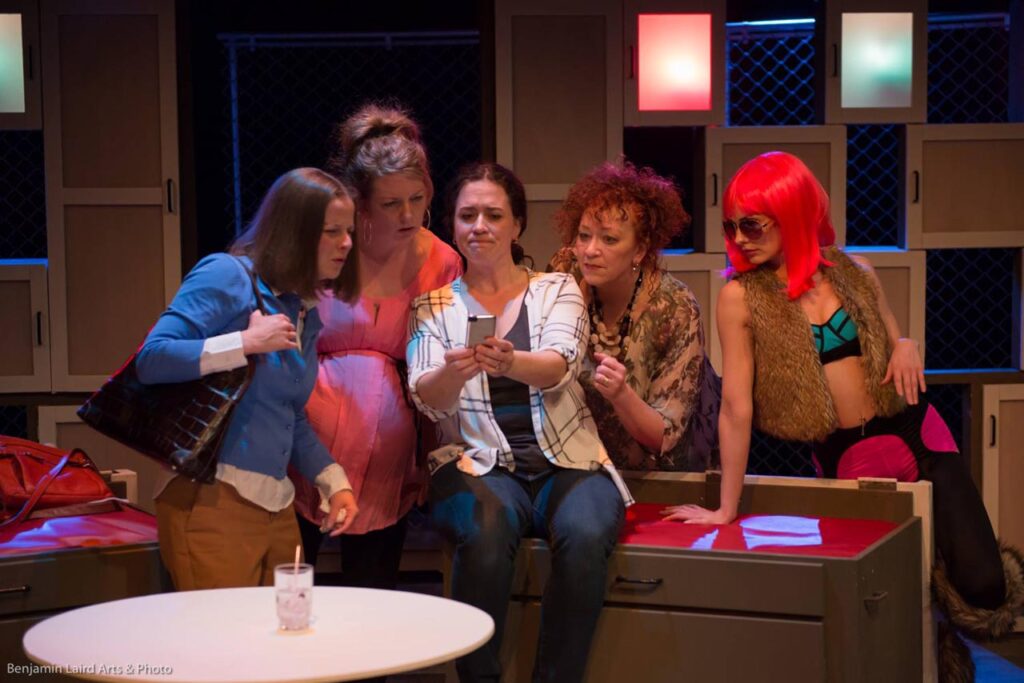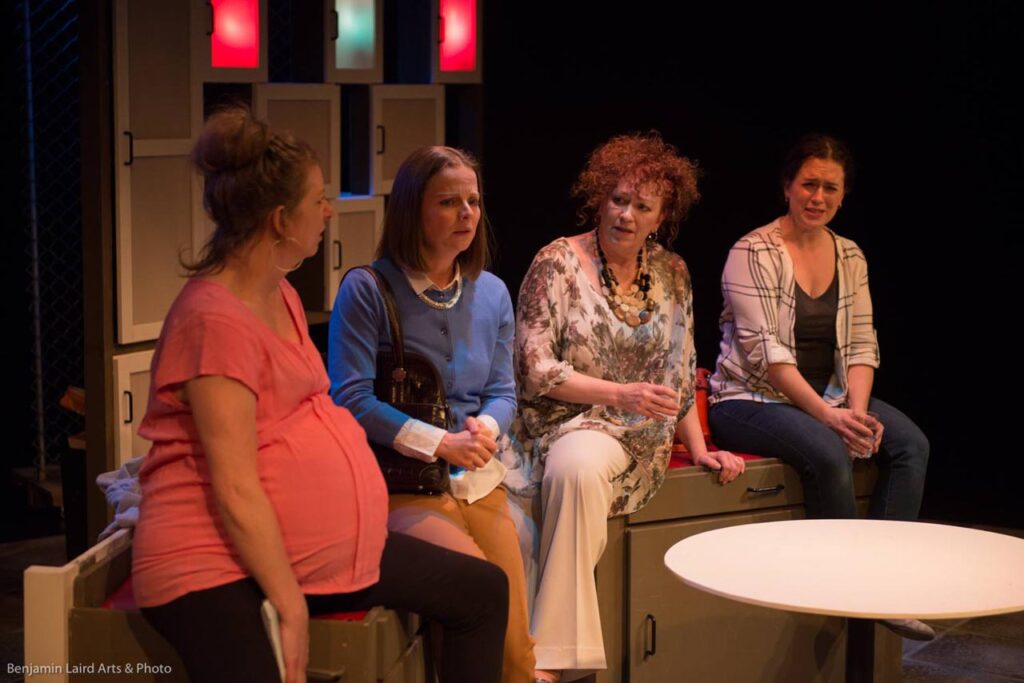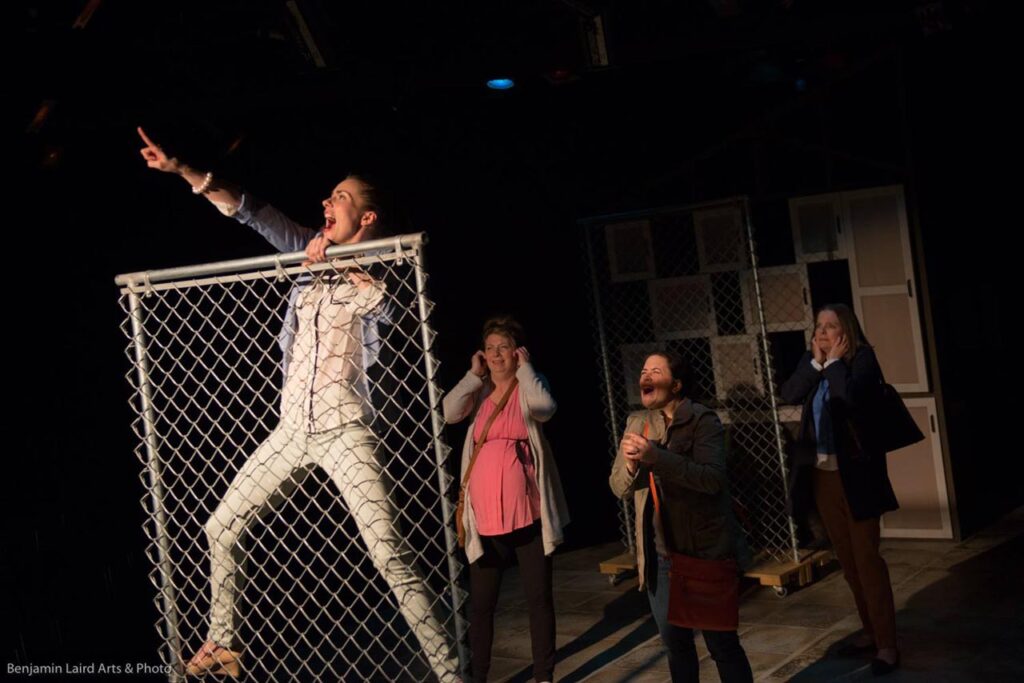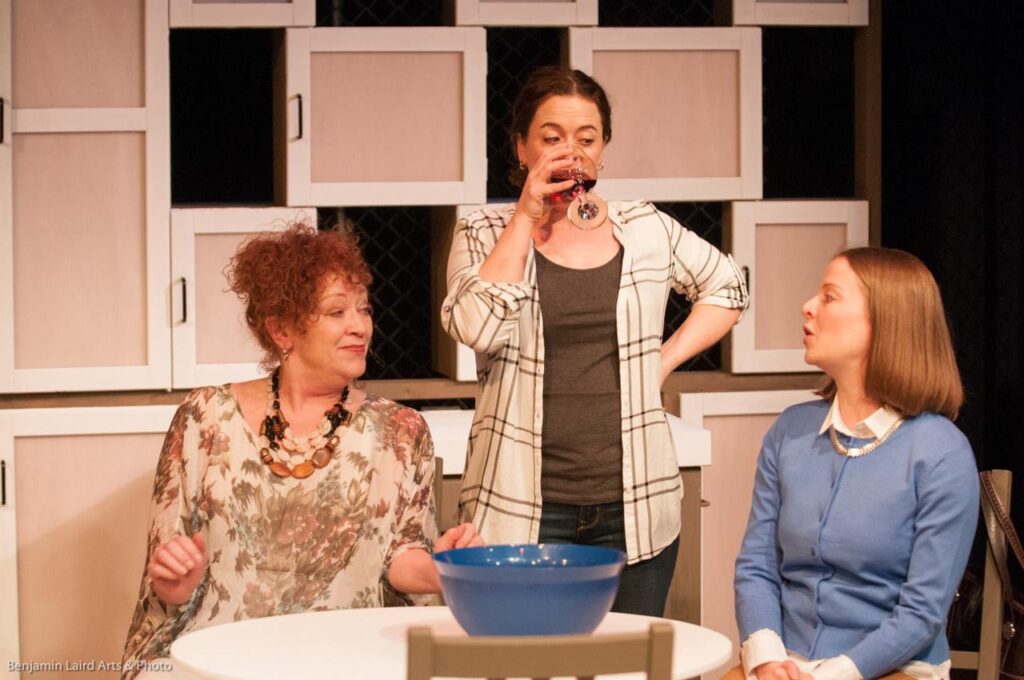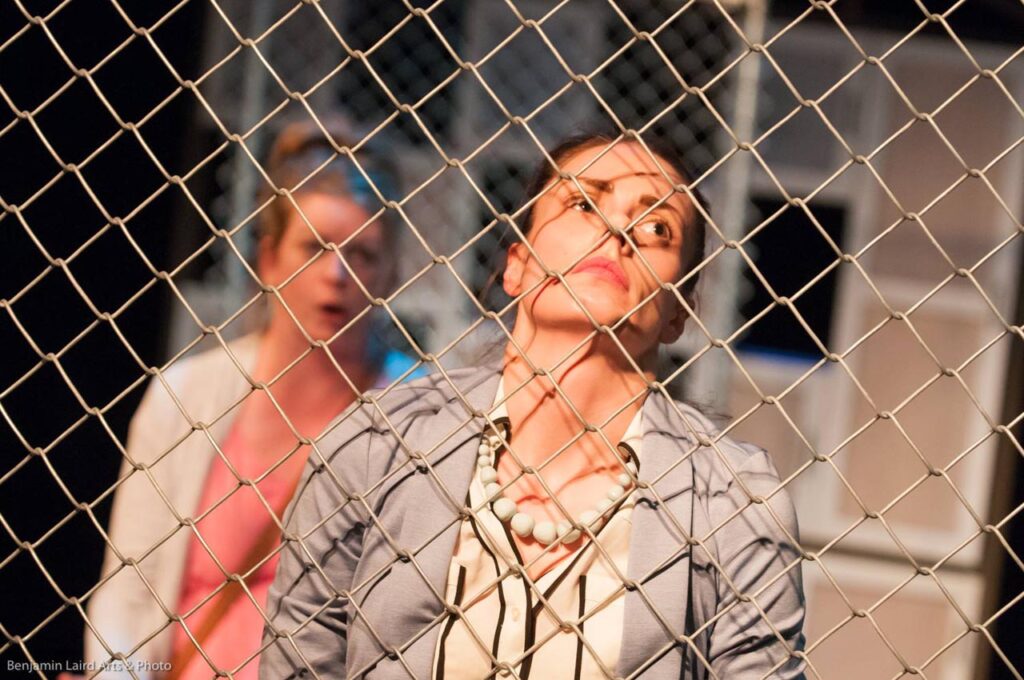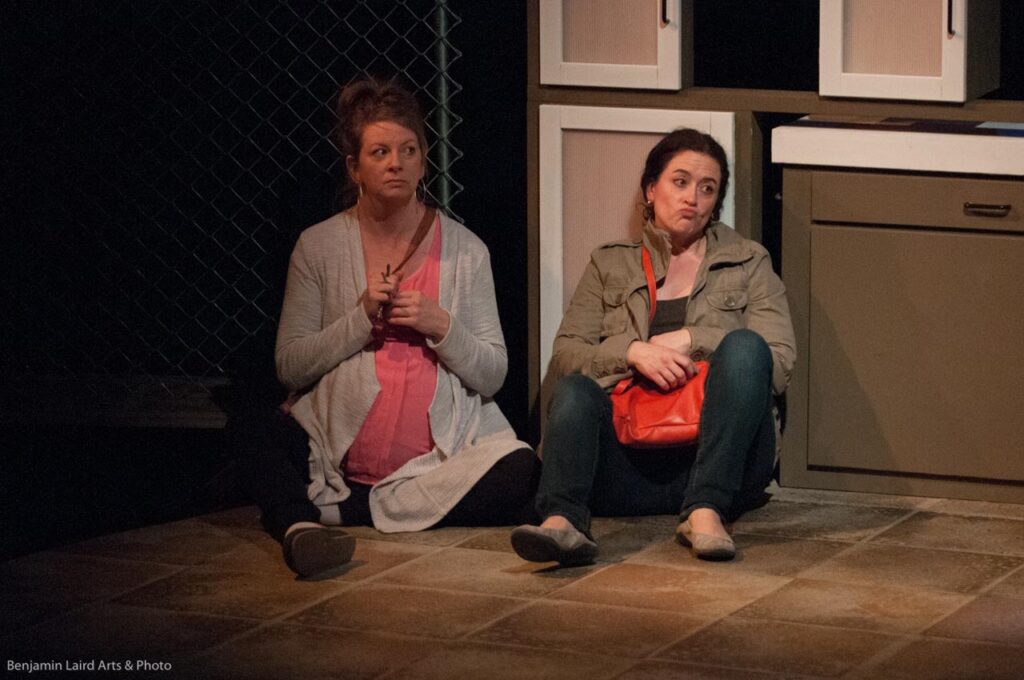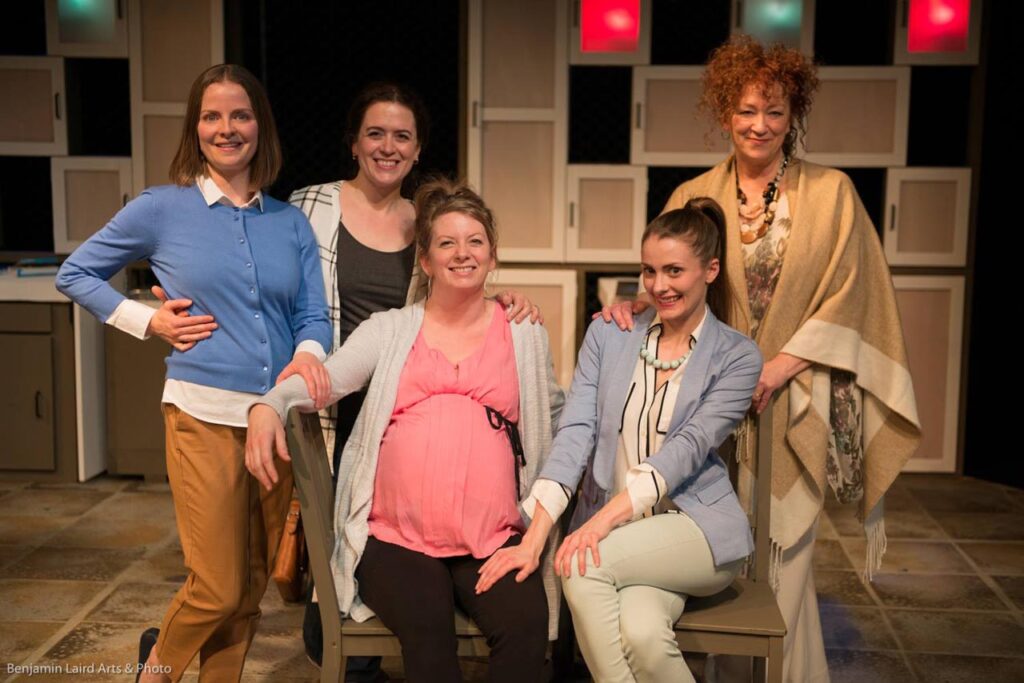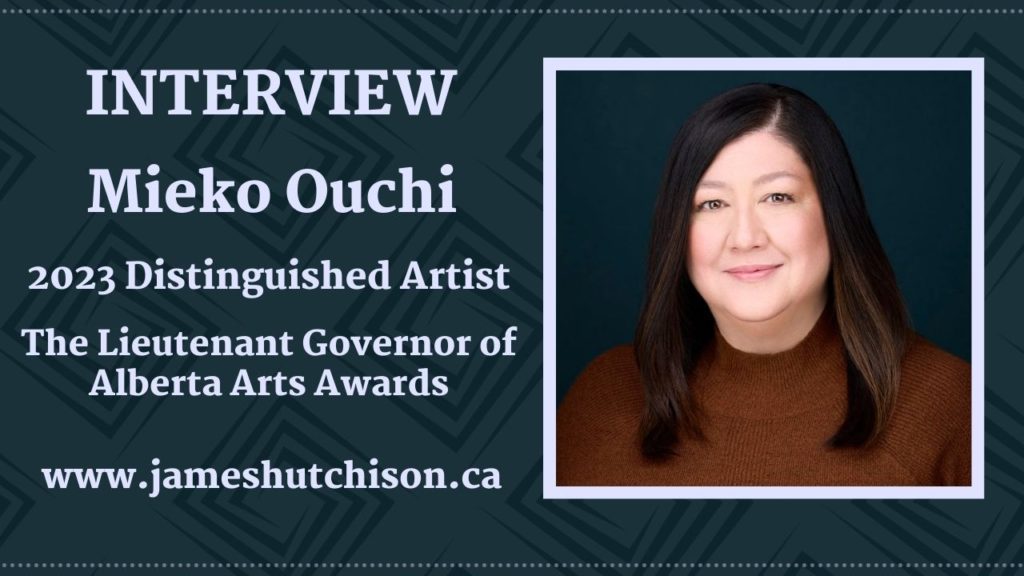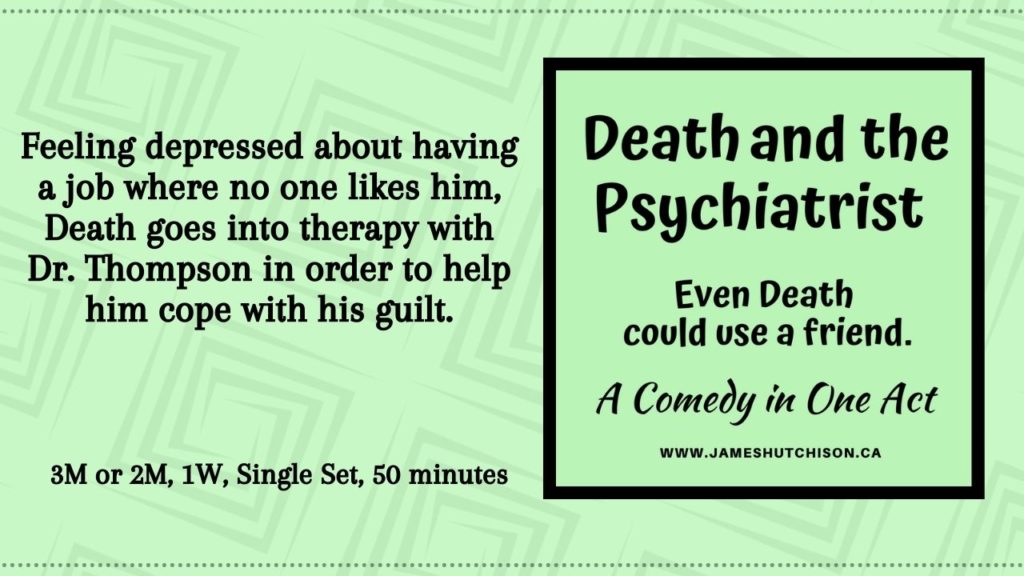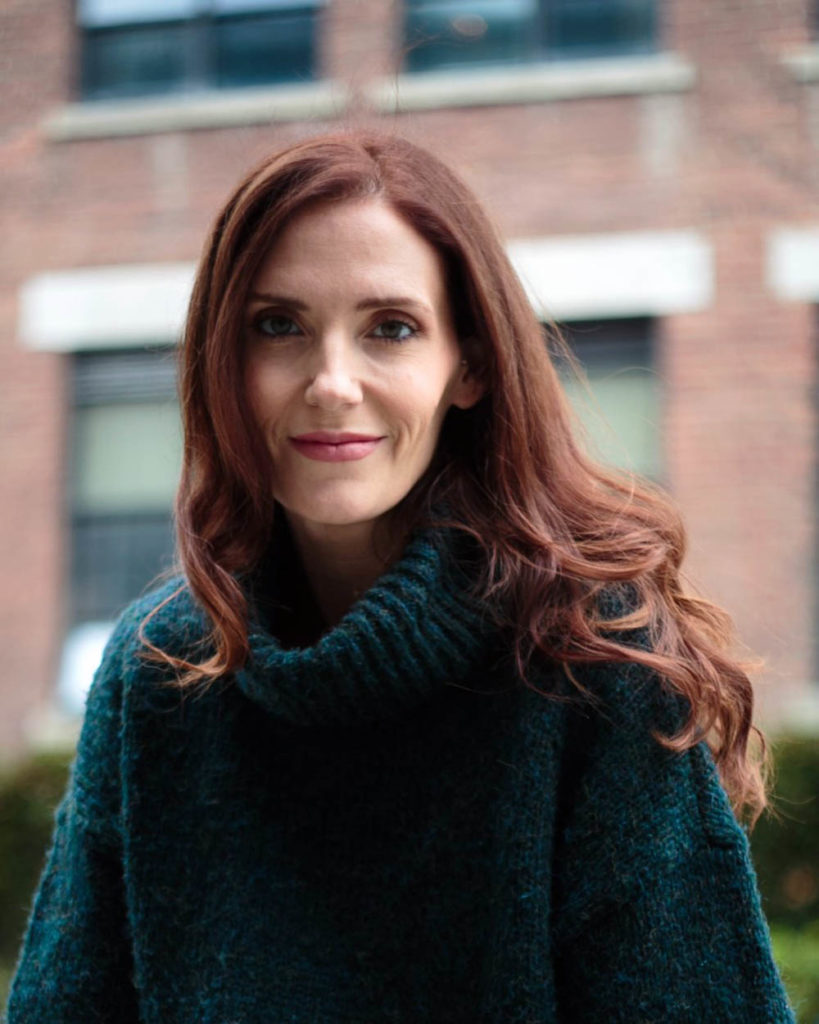
“I wrote a comedy with a character who has terminal cancer, and I didn’t know whether that was going to work, whether people were going to be willing to go there and laugh in the same breath as they’re going to cry. I lost my aunt to the same cancer I wrote about, and you know we didn’t get to confront some things in real life, because we’re not always capable of doing that with our loved ones, but I got to confront some of those things in the play. So, I think that comedy is a doorway to some tough conversations. And I set out to entertain people, but I don’t shy away from tackling things that might be more difficult or might evoke sadness, because I think there’s something really cathartic about feeling all of those emotions in one night.”
The Rules for Playing Risk, Where You Are, and Hurray Hard are just a few of the plays where playwright Kristen Da Silva takes a comedic look at the loves, ambitions, and struggles of the everyday people in her plays. In fact, that’s one of the reasons I love her work so much. These are people you can relate to and understand and identify with. These are stories about people trying to navigate the intricate, and mystifying road of relationships, love, and sometimes even death all delivered with humour and humanity.
All the more interesting is the fact that prior to diving into playwriting and acting full-time Kristen spent the first part of her working life in the corporate world. Home on maternity leave with her youngest son, and feeling a need for some intellectual stimulation, she wrote her first full-length romantic comedy Book Club. Other plays were soon to follow including Gibson & Sons and Hurry Hard both winners of the Playwrights Guild of Canada Comedy Award.
Her most recent play, The Rules of Playing Risk, a touching story about a grandfather and his estranged grandson getting to know each other for the first time, premiered in April 2021 in a video-on-demand production from Theatre Orangeville. I contacted Kristen over ZOOM back in February 2021 to talk with her about her creative process, thoughts on comedy, going down rabbit holes, and what she’d say to her younger self if she could go back in time.
JAMES HUTCHISON
A couple of days ago, I watched this documentary from 1964 called Ladies and Gentlemen, Mr. Leonard Cohen, and it reminded me of my childhood, because I grew up in the ’60s, and I was watching the cars and the way people were dressed, and I had this avalanche of nostalgia hit me, and I found myself diving into memories of my childhood. I was wondering, for yourself, do you have triggers that take you back to your childhood? And what was that childhood like?
KRISTEN DA SILVA
My favourite part of my childhood was camping. We used to go up to Wasaga Beach where there was a campground, and we had a trailer, and the smell of smoke from a campfire and the smell of Avon Skin So Soft still brings me right back to my childhood. My parents, like everyone, used Skin so Soft as a bug repellant.
The winters were a bit tougher because when I was seven we moved to Nobleton – which is a village surrounded by farmland. It was very different from the neighbourhood where I had spent the first seven years of my life – where there were a lot of families packed in tightly together with kids, and it just facilitated kids playing more easily. In the country to play with someone, you had to be driven to their house.
But at the campground kids used to play all day, and I remember coming back at whatever time curfew was, but all day long we just ran around and played capture the flag and explored the woods. I have great memories of that.
JAMES
I guess when I think back to my childhood and what’s different today is the sense of freedom children had to play. To explore. I remember riding all over Calgary on my bike, you know, going for miles, all over the place.
KRISTEN
Yeah, it’s very true. It’s really changed. I would lose my mind if my kids were gone all day, and I didn’t know where they were. But that was normal in the ‘80s. There were no cell phones. No way to really check-in. It was just come in when the streetlights come on.
JAMES
Supper time is when the mothers are standing on the porch shouting for the kids.
KRISTEN
One of my aunts used a whistle to call us back. When we heard the whistle, we came running. And other than that – we were on our own.
JAMES
At what point did you find yourself being on stage and telling stories, and where do you think that impulse to perform comes from?
KRISTEN
I think it started with dance. I didn’t really enjoy dance in terms of the lessons, but I remember really enjoying the recitals. That feeling when you go out on stage and you’re suddenly not as bound by your own awareness of yourself, and you can express yourself in braver ways through performance and through playing a character. I think that’s what really drew me to theatre and kept me coming back time and time again.
And I remember when I would go to a movie, I would leave the theatre and still be in that world. I was a big reader and I think I was living in a fantasy a lot of the time. Every activity I did as a kid I turned into a story for myself. I remember going skiing and weaving a tale as I was riding the chairlift about what I was there doing and where I was in the world. I spent a lot of time inside my head. Inside fantasy. And I think being on stage was an extension of that.
I first started acting in school. I believe we did Rapunzel, and I think I played Rapunzel’s mother. I played Mary in the school Christmas pageant, which was in French. I remember going to the manger and we were speaking French. And then after that, once I got into higher grades, there was a school play you could audition for every year, and I always did that.
JAMES
So, it’s interesting to me that you’ve got this storytelling narrative going on in your head and this love of fiction and literature, and then you go to university and major in political science and labour relations. How does that happen?
KRISTEN
Well, I’ve thought about it a lot because it really is strange. And the weirdest part is that my parents encouraged me to major in theatre. And I said, “No.”
I think I felt scared of failing. If I were to pursue what I really cared about – and it didn’t work out – that felt like too big a thing to put on the line. These weren’t conscious thoughts that I had back then, but now looking back on that decision I think that’s the main reason I didn’t major in theatre.
Also, it wasn’t a usual career choice at my high school. I didn’t know anyone who had done that in my peer group or slightly above my peer group. I couldn’t look to someone else and go, “Okay, so that’s a path I could take.”
JAMES
What were the university years like for you? Because I understand you did keep your foot in the theatre circle. You joined an improvisation troupe.
KRISTEN
Yeah, I kind of didn’t deliberately do that. You know honestly, when I think back to that time I was really overwhelmed by the experience of attending university, because keep in mind, like from the age of seven on, I lived in this tiny village, and we had one stoplight, and you know even going to York and seeing that many people in one place was a really new experience for me.
I don’t think I was really sitting down in an organized way and thinking through things. You have to declare a major, and I had done very well in my last two years of high school in history and in law, and I thought, “Well, I’m good at these things. I think maybe I’d like to pursue something like that.”
And then at York, in order to graduate, you have to do an arts credit in your first year, and you can pick any art. I picked theatre because that was what I was already familiar with and liked. It was because of that that I got into the improv company because the professor who taught me, Fred Thury, ran Vanier College Productions, which at that time was sort of like a theatre program for non-majors. It was where people could continue learning about the craft and perform.
He asked all the people that were in his acting class to audition for Vanier College Productions, and – I think even before that happened – they’d already cast the improv company, but somebody had left, so he approached me during class one day and basically said, “You’re going to come and be in this improv company.” It wasn’t really, “Do you want to be in this?” It was, “You’re going to be in this.” Which is sort of how Fred was. He was like, “You’re directing the next play. I see your potential, so I’m not going to give you a choice.” Which I think, given my personality, and how wishy-washy I was – is what I needed.
And after that happened, I was smitten. We were performing sketch/improv shows once a week, but we were rehearsing and writing new sketches, I think, two or three times a week. Some years I was also involved in a mainstage show. It became really busy and was also social, and you know you’d think, before class I’m just going to pop over and help with costumes, then you find yourself there for three hours. Oh, shoot, I missed my whole lecture. I really got distracted and sidetracked, and I had a lot of catching up to do on my other classes.
JAMES
You mentioned you grew up in a small village and you talked a little bit about your friends. Have you retained any friends from your childhood or the university days? And, if so, what’s it like having that long connection with someone?
KRISTEN
I have friends from my camping days. We don’t see each other very often, but once in a while we might chat over Facebook. I’m still in touch with my best friend growing up and we see each other once in a while. We’ve lived in separate places a lot since childhood. She was in Kelowna for several years and then, you know, once you have a young family, you don’t see people as often as you’d like.
The people I’ve stayed closest with are the people I met in university doing improv and doing Vanier College Productions. I’ve made a few very close friends through that, and we lost touch with each other for a little while, but we reconnected probably ten years ago. Some of my closest friends are people I met in university.
What does it mean? I mean, I think it’s just that thing of having a shared experience with someone, someone who understands how dear you hold a place that other people, who have not been a part of that, find hard to understand. We went through these experiences in university that shaped us as people, and as artists, and there’s that sort of mutual history together that matters.
And there’s just that thing of people who have been there for you through your life, the people who have been there for your major milestones, good and bad. They become the people that you trust the most, and you turn to, and in some cases, and for me, this is very true, they become your family, your chosen family.
So, they are very important to me. And particularly in the last few years, as I left my previous career behind to embark on playwriting and acting as a full-time pursuit. That was really scary. And those were the people that kept me focused, cheered me on, and bolstered me, and let me know I’m doing the right thing. And when you lose faith, having somebody there who can say to you, “Don’t lose faith, you are on the right path” is totally invaluable. That’s the role we try to play for each other.
I think anytime you see somebody who’s been successful at something often it’s because of the people around them, who support them. Maybe we don’t appreciate that enough and how important that is, because doing something all on your own and maintaining your own momentum takes superhuman confidence.
JAMES
So, I’m wondering now, at this age and with the life you’ve lived, and the wisdom you’ve gained, if you were to have a time machine and you were able to go back to the campus when you were a young student in the bar having a beer, and you went up to your younger self, what advice would you give her?
KRISTEN
I actually think the way things turned out and the path I took is exactly how it had to happen in order for me to arrive where I am, and I’m happy with where I am. I’m grateful for where I am.
So many things had to be in alignment for me to pursue this career and one of the things that absolutely had to happen was I had to go into the corporate world, because if I had not done that – I wouldn’t have had the money saved to make a go of it.
The business skills I developed are really useful as an entrepreneur, as someone who’s trying to manage their own business, if you will. I have a great agent now, but certainly, in the first few years, everything, marketing my work, negotiating, all of that was me. I learned a lot of those skills in business.
And I also wouldn’t want to tell myself to avoid things that were painful or avoid things that you could look back on as regrets, but you can’t, because as cliche as it sounds, all the things that you’ve done and gone through become where you draw your stories and your understanding of the world from. Life is an incredible teacher. There is no shortcut to learning some things.
So, I wouldn’t want to go back to myself in university and tell myself anything that might change what I decided to do, because I think what I decided to do is why I’m where I am right now.
JAMES
So, you’d buy her a beer and say, “You’re on the right path, kid.”
KRISTEN
Yeah, I think I would probably just give her a pat on the head and maybe tell her it’s going to work out. I think that’s what I would do.
JAMES
I want to talk a little bit about some of your thoughts on theatre and writing, but I want to start by asking you about some of the writers you like and admire and who they are and why you happen to like their writing, and I’m thinking particularly playwrights, but it could be novelists, or other writers too.
KRISTEN
I’m really interested in who else is writing comedy, and I’m big into Canadian writers in general. I’d hate to leave anyone off a list because I have so many friends who write. If I were to pick a single play that really moved me recently it would be What a Young Woman Ought to Know by Hannah Moscovitch. I listened to it on the Play Me Podcast where they do radio readings of Canadian work.
There are some American playwrights whose work I like as well. Annie Baker comes to mind. Currently, I’m reading a Lynn Nottage play called Sweat, which is fantastic.
And in terms of other reading, I tend to gravitate to things that are not comedic. The last novel I read was The Nickel Boys by Colson Whitehead, and I highly recommend it. I finished it at 2:00 am and, without giving too much away, there’s this twist, one of those gut-punch sort of things. The power of really good writing amazes me.
JAMES
We talked about you majoring in political science and I have a BA in sociology. And I’m wondering if political science and sociology are about exploring the balance between the individual and society. And I’m wondering if that’s a fundamental subject of drama, right? Conformity versus individualism, and the tension between those two. So, I’m wondering what are some of your thoughts about freedom and conformity and stories? Do you see any of those themes in your own writing or in writing that you like?
KRISTEN
I view reading as one way to better understand things I have never experienced, or I never could experience myself. I don’t know how much I have to say about the specific subject of individuality versus conformity, but certainly good stories often have a character that’s willing to challenge their status quo or the status quo of the world. To make things better, and that’s certainly a theme that’s appealed to me.
I think reading things that are written from a point of view you don’t personally own can grow empathy and understanding for other people and find the commonalities between yourself and other people because there’s always something, regardless of what the story is, relatable in there. Someone has written this story, and it might be their own story, or it might be a story about their community, and that’s such a gift to be able to open a page and grow your understanding.
JAMES
So how does comedy provide insight into the world? Because you’re a comedy writer, and I agree, I like finding the comedy writers. Why do we need comedy? What does it do for us? How does comedy help us understand the world?
KRISTEN
I think it plays a huge role, and I think that’s because it’s really hard for people to be vulnerable and comedy is a way for us to put down our guard. Laughing with someone is a really quick way to find common ground. We both found something funny, and now we’re laughing. There’s a science behind what laughter actually does in our brain, and some of those brain chemicals allow us to feel a little more open for a while after we feel them. In that way, comedy is like a doorway into being able to examine ourselves without the level of fear we might feel doing that directly.
I think comedy is a huge opportunity to bring people in and have them hear what you have to say. It’s very disarming to laugh. And when people are relaxed, and they’re enjoying the story you can say some things and you can get some things across in a way that you might not be able to do off stage.
I wrote a comedy with a character who has terminal cancer, and I didn’t know whether that was going to work, whether people were going to be willing to go there and laugh in the same breath as they’re going to cry. I lost my aunt to the same cancer I wrote about, and you know we didn’t get to confront some things in real life, because we’re not always capable of doing that with our loved ones, but I got to confront some of those things in the play. So, I think that comedy is a doorway to some tough conversations. And I set out to entertain people, but I don’t shy away from tackling things that might be more difficult or might evoke sadness, because I think there’s something really cathartic about feeling all of those emotions in one night.
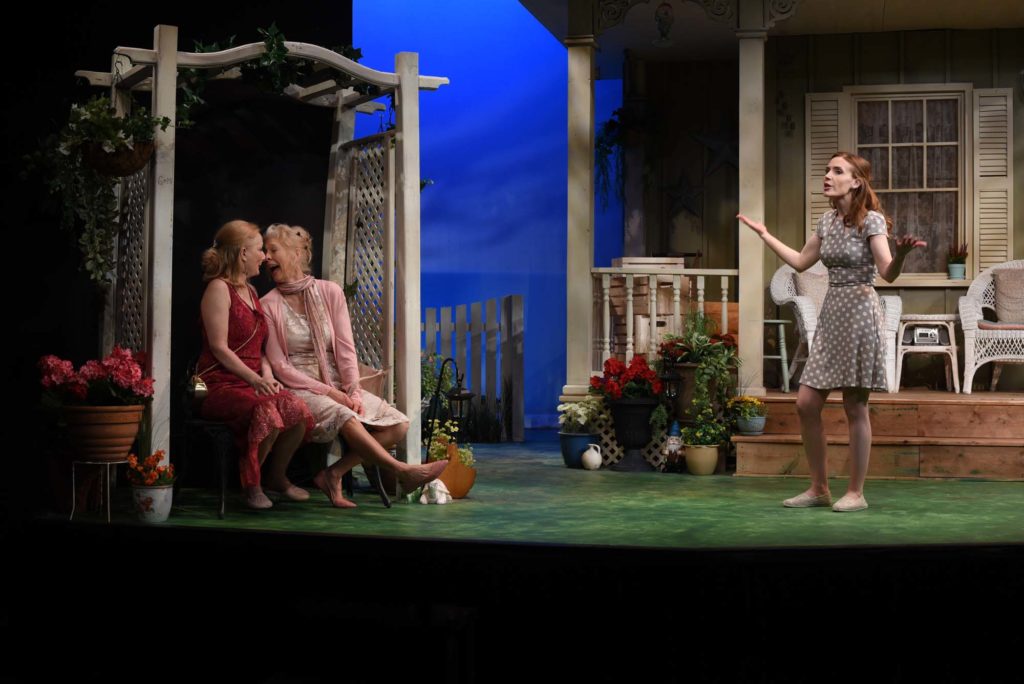
JAMES
In our correspondence, I mentioned that I finally got around to watching all nine seasons of The Office and you wrote back, “Oh, that’s one of my favourite television series.” Why does The Office appeal to you? What do they do well? Why is this one of your favourites?
KRISTEN
The first time I watched The Office I was going through a very tough time. I was living on my own for the first time in my life, I had a one-year-old son, and it was a very stressful, lonely sort of time. And someone said, “There’s this show you should watch, The Office, it’s funny.”
So, I put it on one night, and there was just something so comforting about it. It was about everyday sort of scenarios where people are just going to their office job, and the company they’re in is a paper company, and everything feels kind of low stakes from that point of view, but the personal stakes are really high. Steve Carell is a genius in his role. And that character is so believable, even though he’s so outrageous. The writing is funny, the characters are solid, and you feel like the actors are having fun. It became like comfort food to me.
JAMES
You know the entertainment industry has a tendency to label people. This actor does this type of character. This writer does this type of writing. In what ways is that helpful? And as a comedy writer in what ways do you think that’s a hindrance?
KRISTEN
That’s an interesting question. I don’t know. I don’t know if there would be resistance to seeing something of mine that isn’t funny at all. I think over time, as I’ve written more, I have become more comfortable with putting more drama in my comedy, but I don’t yet feel compelled to write a pure drama, and whether or not people would embrace it – I don’t know.
As an actor, I do both. I have done a lot of comedy on stage, but I’ve done drama on stage as well. And in terms of film and TV work, it’s mostly drama. I think that some of the best comedic actors are also some of the best dramatic actors, because I don’t think the skill set is different. I just think that with comedy, there’s a technicality that sort of comes in about timing, and for some people that doesn’t come naturally to them. The really great actors are gifted with that skill, and they always say you should play a comedy like a drama. You should take it very seriously. Whatever’s going on should mean the world to your character. I think that’s what makes comedy work. If we go back to The Office, you know, Dwight is just as serious as can be. And it’s funny, because the actor, Rainn Wilson, has chosen to commit to that.
JAMES
Now that you’ve written six, seven, eight plays are you noticing any particular themes in your stories? Is there anything that you gravitate towards now that you’ve got a body of work?
KRISTEN
Oh, yeah, for sure. For sure. The same themes show up in everything. For me, it’s a lot of stuff around relationships and familial history. Mothers and daughters. Daughters and fathers. Fathers and sons. Brothers. Pretty much everything I’ve written, except one thing I think, speaks to those themes and explores the challenges inherent in those relationships. A lot of things around people trying to work out what happened in their past and make amends.
I’ve just finished writing, The Rules of Playing Risk. It’s about a grandfather and his estranged fourteen-year-old grandson who he doesn’t really know and whose father he didn’t really know either. The story is about what prevented the grandfather and his son from having a really meaningful father-son relationship and how that has impacted the grandson.
The play also deals with trauma and with PTSD. Not in a very open way, it really only deals with it through how the characters have adapted (or maladapted) to their own traumas. I was interested in the idea of how many generations does this affect – what gets passed down and how far-reaching some of that stuff is. I have a personal connection with that. And in the research for this play about this grandfather and grandson I took a lot of details from my own family history.
Both of my grandfathers were in the Second World War, and when I asked my family what my grandfathers had told them about their memories of being in the war it was sort of shocking to me that, at least in my family, they never talked about it. I mean, they would have gone through some horrific things that we now understand carve a lasting imprint on the brain and affect everything about somebody.
And I was interested in that. You know, how does a person go through this terrible thing that must have had a deep impact on him at a young age, and then come home, marry, and have kids immediately. That had to impact him and the way he parented, and it had to have impacted everyone around him. And so, I was curious to see how that showed up in my own family when I was growing up. And how does it show up in me now?
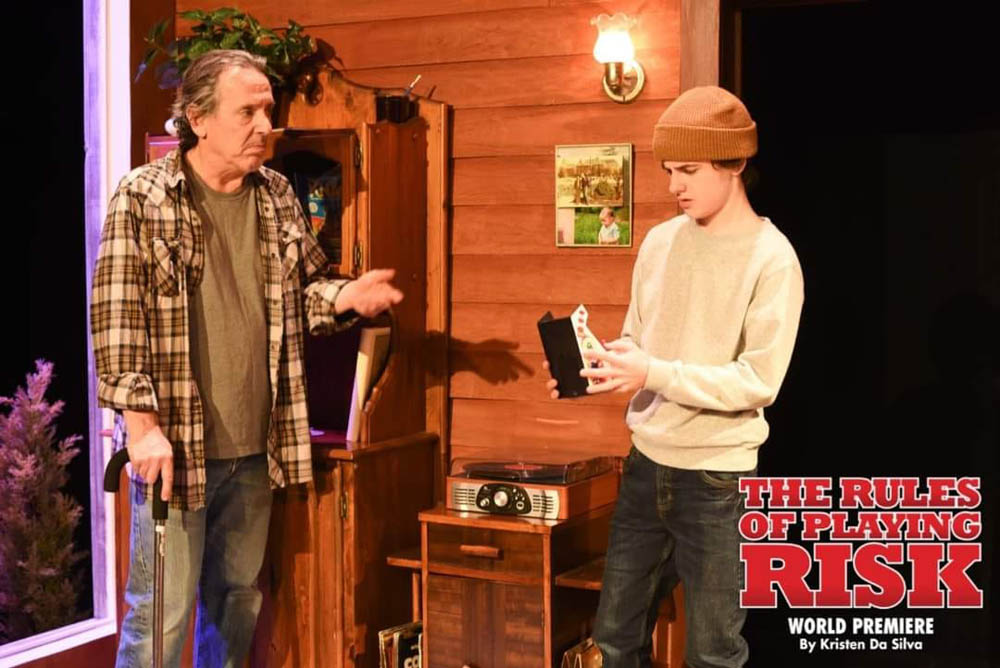
JAMES
If you look at the plays you’ve written and characters you’ve created is there a particular character or a couple of characters that maybe are closer to who you are as a person?
KRISTEN
I don’t know. I’ve never thought of that. I would probably have to say that the character I’ve got in this new piece, The Rules of Playing Risk, whose name is Maggie is probably the most like me in terms of how she thinks and how she responds. Our backstories are different, but I would say in terms of personality, she’s probably the closest. She’s quick-witted but cares about people, and she engages in the world with humour, more so than anything else, which is very me. There are probably parts of me in everybody I write. Probably, there are parts of you in everybody you write too.
JAMES
Even some of the nasty characters? The not-so-nice characters?
KRISTEN
Oh yeah, that’s the interesting stuff, right? Like, where did those come from? Are those the things we don’t like about ourselves that we’re exploring on the page? I haven’t written a lot of villains because my plays don’t tend to have a villain. The only play that I can think of that really has someone who was set up to appear to be a villain at first is Five Alarm where there’s the rivalry between the two main characters competing in this chili cook-off. And a lot of that was extracted from my own life. The character isn’t based on me, but some of the things that end up explaining her behaviour I could relate to.
For her, it was the feeling of being left out of things, and she acts this way, because she feels rejected. And I can remember feeling some of those things in my life and certainly, I’ve observed other people who are very spiny and have a hard time letting people in or being vulnerable and that stems from having been rejected and not feeling safe around other people.
JAMES
I suppose that’s because as humans, so often, our behaviour is designed to protect us.
KRISTEN
Yeah, exactly. I think most people want to experience a true connection with others. And it’s just, there are so many things that happen in our life that scar us and make that hard. The more things that someone’s been through the harder it is for them to find the courage to open themselves up and to be hurt again. There are people who struggle with that forever and never resolve it. And it’s sad. Unfortunately, tragic things happen, and people become so defensive over a lifetime that they can’t let others in. That theme shows up a lot in my writing.
JAMES
Do you think a lot of theatre and stories are about characters attempting to be their authentic self and maybe that’s why we relate to it? Is that one of the appeals of drama? Watching characters trying to do that. And then how hard is it for people in life to be their authentic selves?
KRISTEN
It’s really hard. I do think that’s the appeal. I think that’s the appeal in writing it too. Sometimes you can resolve things through writing that you can’t resolve in the world, because in writing I have the ability to force the conversation between two people. And as a writer, I can choose to allow that person to take whatever step, even if it’s just that tiny step that allows the conversation to start. I can force them to do that.
In the real world we all have people in our life that you want to say, “Stop! Everything you want is available to you. If you would just lay down your defences and reach out for it you would have richer, more meaningful relationships and that might mitigate some of your feelings of being rejected.” You see these people struggling to belong, and a lot of the time their struggles are self-defeating. You’re right – it’s fear-driven. No one wants to be hurt, and vulnerability is the most important ingredient in connection, but it’s so hard for most of us to be vulnerable.
JAMES
We started talking about comedy, and now I think we’re talking about tragedy.
KRISTEN
I think they’re the same.
JAMES
Are they?
KRISTEN
I think they are. I don’t know about you but if you were to break down what your comedies are about you could take some of these same subjects and make them into a drama. If you took out some of the jokes and changed the dialogue.
Even my play Hurry Hard, which is about these people who want to win a local regional bonspiel, is really a story about this estranged couple whose marriage ended because they weren’t able to find vulnerability together and figure out their problems.
And it’s also about this relationship between two brothers where this tragedy happened. The older brother was on track to having an incredible NHL career, and a stupid choice by his younger brother led to an accident that basically took him out.
And they both have to live with that in their relationship – the level of guilt, on one hand, that has made this relationship dysfunctional and then, on the other hand, this guy who loves his brother, but his brother took something away from him and that’s left him bitter about what his life ended up actually being.
All of these storylines could be put into a drama very easily and still work. I don’t think comedy and tragedy are very different.
JAMES
Subject matter may not be different, but the tone is.
KRISTEN
Yes.
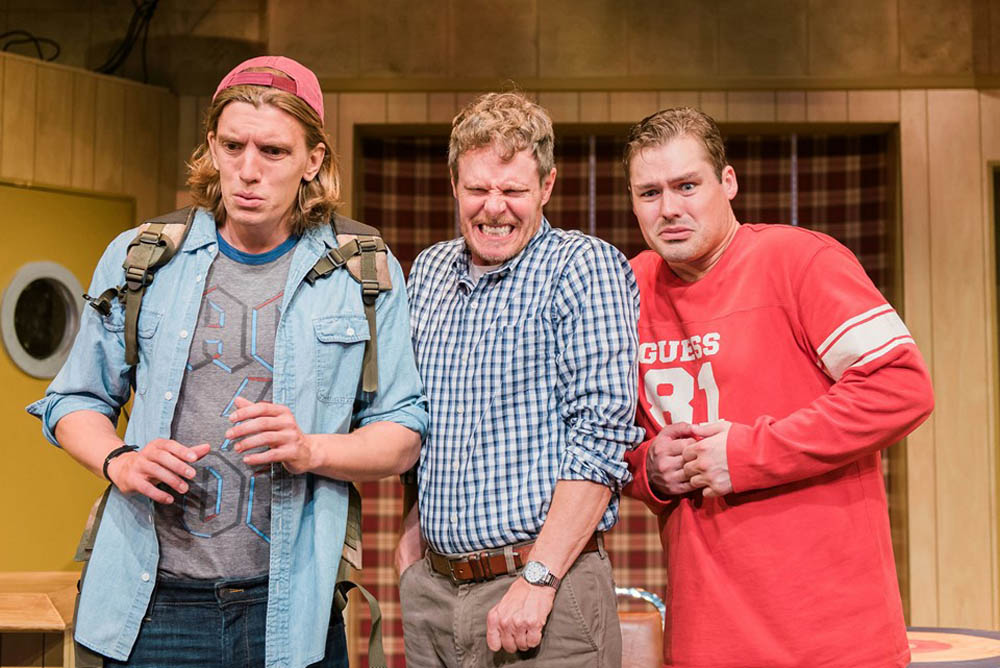
JAMES
How would you describe your writing process?
KRISTEN
I think most of my writing happens when I’m not in front of my laptop. So, before I start writing, now, usually I have had the idea in my head for a while, and I have started to work out some of the details, so when I get to the actual phase of sitting down to start writing dialogue I have a sense of who the people are already. Their voices have been in my head. I’ve probably already played with some lines of dialogue, I’m starting to figure out the relationships, I know what the conflict is and I’m working out the details.
So, I do a lot of thinking before I sit in front of my computer, and then I tend to write in bursts of a day or two where I’ll sit at the computer the whole day and I’ll get a lot of writing out. Usually, the first thirty pages of something new flow out of me and they’re really easy to lay down. When I’m writing a two act play once I get to a point where there will be a natural intermission there’s always a timeout. I almost feel like I lose momentum at that point, because I’m trying to figure out act two.
The first few times that happened, I panicked. And then once I had worked my way through that painful period a few times, now I expect it to come, so I don’t panic. And I will take as much time off as I need. There might be a break of a month or two in between writing. I have things I need to work out, because I don’t really do detailed plotting. I don’t plot it out on paper. I plot it out in my brain, but I also leave space for the characters to tell me what’s going to happen. I think at some point the characters start talking, and they start doing things, and then you’re just there to report it. I think they need room to do that.
JAMES
Do you find you always know where the play is heading in terms of an ending? I know John Irving – this is so bizarre to me – in interviews, he says that he always comes out with the last sentence of his novel. He writes down the last sentence for The World According to Garp or Cider House Rules – he writes down the last sentence and then he writes the story, and he said, he has never changed the last sentence. That just shows you how unique writing is. There’s no other writer in the world who does that. But that’s how he writes. So, maybe talk a little bit about endings and when those come to you and how they help you in your writing process.
KRISTEN
I don’t always know the ending. I usually have an idea of where it will go, or I have two or three alternate endings in my mind where it could end up. And that’s because I find as you’re writing you’re taking new paths you didn’t expect.
At some point something occurs, and you follow it, and it opens up a different lane, if you will, and you need to be able to be open to that effecting where the story ends. And I think part of the pleasure of writing is discovering that. The reason I don’t write a detailed plot is because I think I would lose interest if I already knew where it was all going to go. I think part of the joy of writing, for me, is discovering the story.
JAMES
A lot of your stories deal with relationships and romance. Are you a romantic?
KRISTEN
I have to admit, after all these plays I’ve written about love that I must be a romantic. I didn’t think I was before. I really didn’t.
I don’t know what your childhood was like, but my parents and family weren’t effusive, and we dealt with life through humour. That’s how we would show love. That’s how we managed disagreement. We managed most things through humour, and humour is a door. Humour can be used to open a door, but it can also be used to close things off.
So, I have had a hard time with romance in my real life. But I think there’s a part of me that really yearns for that and has always wanted the world to be more ideal. And you have to believe in love, right? What else is there? If you can’t root for love and root for the most powerful thing in life then suffering will quickly outweigh everything else. I think, again, back to what we really, really truly yearn for, above all else, is connection. It’s human connection. We are social creatures who rely on each other.
JAMES
I read in a couple of interviews you gave that your friends say you have a tendency to head down rabbit holes.
KRISTEN (Laughs)
Oh, God.
JAMES
How do these rabbit holes serve you in terms of your creative life? Are the results useful?
KRISTEN
I think it’s always useful. You might not need the specific information or knowledge that you’ve gained but there is something useful about constantly challenging your brain and opening new pathways and learning new things. So, something will catch my interest, and my interests are varied, and I think what my friends find amusing are the unexpected topics I’ll go down a rabbit hole on.
At the beginning of the pandemic, I got super into astrophysics, and I was trying to understand string theory, and I still don’t understand it. I watched hundreds of hours of video and read more things about it because once I’m curious about something my brain doesn’t want to let go of it until I understand it.
I sort of hyper-focus on things and that includes writing, which I think is a gift as a writer to be able to hyper-focus and get a lot done in a short period of time, but as a human, it’s a gift and a curse, because you can get distracted by it and end up down a path that really isn’t overly productive. Maybe it will be later, but I don’t think at any point in the future anyone is going to call on me to save the world using string theory.
JAMES
If this is a plot point in a play when you say, “No one is going to call on me to save the world using string theory.” We of course know you’re going to need it.
KRISTEN
Exactly. Well, I better do more research then because I’m just not ready yet. I actually don’t understand it.
JAMES
I’ll bet half the people studying it don’t understand it. Let’s talk a little bit about the first play you wrote called Book Club. Tell me how that came about and why you decided to write it.
KRISTEN
Book Club is the only play that I wrote without any plan going in whatsoever. Like none. It started as a lark. I was on mat leave with my youngest son, and it’s physically busy, but it’s not intellectually very challenging, and I needed something for my brain to work on. I really didn’t write it with a lot of intention. In my later work, if I was going to talk about a subject, I gave it some thought as to what I was trying to say, as opposed to just improvising the whole thing. So, that play, I think, is quite different from the rest of my work.
JAMES
You had mentioned to me that Norm Foster is a mentor and somebody you connected with. How did that relationship happen? How did you connect with Norm, and what sort of sage advice has Norm Foster provided you in your career?
KRISTEN
Oh, gosh, we initially connected on Twitter. I had made a joke and I wrote, “I wish community theatres would do a goddamn Norm Foster play every once in a while.” Which is obviously a joke because it’s hard to find a community theatre that doesn’t have a Norm Foster play in its season. But I didn’t know him, and I tweeted that and someone else – not Norm – took exception to my tweet.
JAMES
They didn’t understand it as a joke.
KRISTEN
No. I thought it was obviously tongue-in-cheek.
JAMES
Yeah, I thought it was obvious too. I thought it was funny.
KRISTEN
Because he’s extremely well produced. Like he is the most produced playwright in Canada, and it’s well earned.
JAMES
If only Tom Hanks could get a break.
KRISTEN
Right. “I wish people would recognize Tom Hanks and put him in some movies.” It was that kind of a joke. Anyway, someone took exception to it and that person responded angrily to my tweet and listed all the places that Norm’s been produced, and I didn’t even see it. I’m at work and my friend texted me and she goes, “Oh my God, you gotta go on Twitter. Somebody didn’t like your tweet and Norm Foster responded to that person defending you.” So, I went on Twitter and Norm basically had said, “I think she was being tongue-in-cheek, and I thought it was funny.”
And then we followed each other, and I was talking to another new playwright, and he had shared his play with me, and in his play he had a foreword he had written, and it included a quote from Norm about his play. And I wrote him back and I said, “Did Norm Foster read your play?” And he said, “Yeah, if you send him a play, he’ll read it.” And I thought, wow, that’s wild that he takes the time to read other people’s plays, because people must be sending him plays constantly.
So, I sort of put that knowledge away, and I still didn’t really have the guts to ask him, because I didn’t know him. And I thought that’s sort of an audacious thing to ask someone, you don’t even know, to spend three hours reading your play when you don’t have a name, and no one knows who you are.
But then one day, I think he had just liked a tweet of mine or something, I decided why not just ask? At that point, I’d written Book Club, and I thought it wasn’t terrible, maybe it won’t be a waste of his time. Maybe he’ll have something to say about it, and maybe he’ll offer some feedback. So, I found myself writing a message. And as I’m writing the message, I find myself not just saying, “Will you read the play, but will you mentor me?”
And, he responded and said, “I’ll read your play. Send it to me.” So, I sent it to him, and he read it right away, and I thought, “Wow how generous that he not only will read my play, but he will read it immediately and provide me with paragraphs of commentary on it.” So, he read Book Club, and he wrote me an email that said, “It’s very difficult to write comedy, and you know how to write comedy.” And he said, “I would love to mentor you. I want to be who discovers you.” And that was the start of what ended up being, to this day, a really meaningful friendship in my life.
He didn’t teach me how to write, but he did help me figure out what worked and what didn’t work. He gave balanced feedback, you know, as complimentary as he was about it, he also had things to say that helped sharpen it. And so, I would ask him questions, if I was confused about something, or if I was struggling with something. And it could be related to the writing itself, or it could be related to the industry.
Because he knows how the industry works. And I didn’t know. I didn’t understand anything about it. I didn’t know how playwrights made money. I didn’t know who made decisions, or how to submit things, and how you get your work produced. I didn’t know any of that. He gave me really solid advice, and he opened doors for me by introducing my work to other people. That is what eventually led to me being produced professionally. There aren’t enough words to describe how important he’s been in my career.
JAMES
Every artist needs their champions.
KRISTEN
Absolutely. And he’s had success and he has the grace as a human being to be willing to send the elevator back down and help other people succeed, and nurture other people with their writing, whether they show great promise or not, he will still read and give notes to people. He has an incredibly generous spirit to other writers because he is really passionate about writing.
JAMES
I’m going to take a little side shift here.
KRISTEN
Okay.
JAMES
Because the reality is we’re in COVID. And we’re in lockdown, and we’re experiencing it, and I’m just wondering what have you found the most challenging, for you personally, living in a pandemic?
KRISTEN
Well, being very honest it’s mental health. Anxiety. I didn’t write for the first nine months of the pandemic or do anything that I loved really, because I was using so much of my energy and my personal resources to manage my way through how scared I felt.
I felt really worried about the sickness itself. Especially in the beginning when we had very little information. I remember thinking, “Can I be outside? Am I going to get sick if I walk my dog?” We didn’t know anything about the virus yet. We didn’t know how contagious it was or how deadly it was. And so, I was scrubbing my groceries down with Lysol thinking if I didn’t do that my family might get sick and God forbid one of them could die, and as a mom of three kids, like all parents, you worry.
So, there was that, and I love my career. I love what I do, and I had an amazing exciting season lined up, and now all of a sudden, I had to watch each show sort of wash up on the shore. Cancellations came in waves. Things got cancelled or postponed, and I know a lot of artists probably felt the same way – it’s not just your livelihood. If you work in the arts, it’s not something you just do to make money. It’s the opposite, right? We almost make no money, and we do it anyway. So, there’s something in it that’s completely integral to our existence. And that being threatened sent me into an existential crisis. I thought, “What would I do if theatre didn’t recover? How would I find meaning for myself? My children give me a lot of meaning and purpose, but theatre also gave me a lot of meaning and purpose.”
JAMES
It’s part of your identity. It’s part of who you are.
KRISTEN
Absolutely. My entire life has included theatre and performing. So, it’s been a profoundly challenging year, but it’s also been a very ground-breaking sort of breakthrough year in terms of understanding that you cannot build your whole life around one thing – that’s very dangerous. So, you have to figure out where your inherent happiness is and how to find joy in life if things you count on right now were to go away, because they can. That’s what we’ve all learned. Things can go away very quickly.
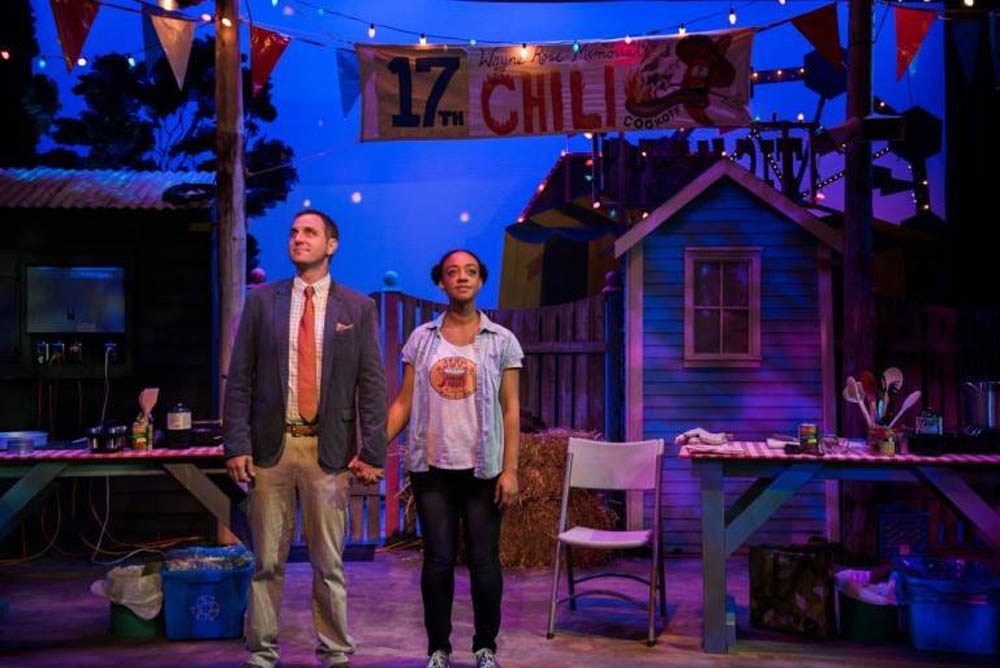
JAMES
I want to talk about honesty, and I want to talk about it on three levels. How important, do you think, is it to be honest with yourself? How important is it to be honest in our personal relationships, and how important is honesty in the writing and presenting of stage plays?
KRISTEN
It’s vitally important in all three areas, I think, again, going back to vulnerability, which requires telling the truth and looking at yourself with a clear eye. Like being able to see the things about ourselves we might not like, and not reject those things but embrace them and accept them. You know, accepting that we’re fallible, that we all have flaws, we all make mistakes, make bad choices. Being able to confront that with honesty, but not with condemnation. I think that’s meaningful when you’re talking about being honest with yourself, but it’s also meaningful when you talk about being honest within relationships. I think dishonesty is often a protective measure. There’s that feeling that if I’m honest about something – whatever that might be – if I’m vulnerable, I might be rejected. They might not accept me anymore.
But deep truly meaningful love and intimacy only comes from the ability to be extremely honest. You can’t build a relationship with somebody on dishonesty because the other person is operating without information that they might need in order to understand why you behave the way you do, and you’re also not able to be yourself. So first, you have to do the work of confronting that in yourself. Why do I react to that? Why does that trigger me to be really upset or feel threatened or angry? You have to be willing to look at things that have either happened to you or that you are ashamed of.
The topic of shame and how it keeps us from being honest with ourselves is also very interesting to me. As a kid I struggled in school to complete things, and I struggled with being able to pay attention. And the way that the world reacted to that was that I was not behaving. I wasn’t being compliant. I was a troublemaker. I didn’t care. I was lazy about school. And those labels stuck to me. And so now, whenever there’s something in my life where I’ve dropped the ball my immediate reaction is to feel shame. I feel ashamed that I’m not as good as other people at organizing my life.
And it’s the same in interpersonal relationships. I think we avoid that feeling of shame because it’s so threatening, because to feel that we aren’t worthy of other people’s acceptance and love is threatening. You know – the idea that we can be ostracized and wouldn’t have people around us, that we would be abandoned. Fear keeps people from being vulnerable with each other.
And on stage, if you want the audience to go on a journey with you, you have to have vulnerability. So as an actor you have to find that. As a writer you have to find that. You have to tell the truth about things. You have to be willing to tell an honest human story showing people that are flawed and still lovable.
JAMES
You mentioned your play, Where You Are, was more personal, because it was inspired by your aunt who suffered from the same cancer as one of the characters in the play.
KRISTEN
Yeah.
JAMES
Why did you feel the need to explore that and create a story around that experience?
KRISTEN
Because I love my aunt so much, and I guess it was sort of a love letter to her. She inspired that story. And I wanted to do what I could to keep parts of her here. I didn’t know how to say goodbye to her and close that chapter. And writing something felt like a way to express what she meant to me. But it also, in a way, helped me process my own grief.
My aunt was given a year when she was diagnosed. And you’ve got one year to do everything you’d want to do, and at the same time, you’re battling an illness. It made me think about my own mortality a lot and what it would be like to know that you had a finite amount of time left. The play, however, is not about my aunt. A lot of the piece is fictionalized. Most of it is very fictionalized. It’s just about the experience.
JAMES
It’s inspired by that experience.
KRISTEN
It’s inspired.
JAMES
Sometimes audiences don’t understand that even though your aunt died from the same cancer the actual story you end up writing from that has touchpoints…
KRISTEN
…but is different. Exactly. One of the main things in the play is the decision to treat the cancer or not. And that came from a conversation with my uncle. He told me she had struggled really hard with the decision to stop chemotherapy because she didn’t want to let her sisters down. She didn’t want to say to her sisters, “I’m not going to do everything I can do to prolong my time here.” Because it comes down to time. When you have a terminal cancer all the treatment is designed to buy you more time, it’s not going to cure it.
And with my aunt and many people who go through cancer treatment, the treatment itself is very debilitating. She would have the chemo, and that whole week she would feel miserably sick. And just as she started to come around it would be time for another round of chemo. And so, she had to make the decision whether she wanted to prolong the time she had or accept that her time might be shorter, but that her quality of life would be better for the last months that she had. And I wanted to explore what it would feel like to be terminally sick and to be thinking about your loved ones and trying to make decisions that are best for you but also honouring your loved ones and the sense of obligation you feel, and that’s really what the character in the play struggles with.
In the play, she has a hard time telling her niece that she’s sick because she doesn’t want it to change their relationship and then everything between them will suddenly have a different colour. Which it does once you know someone’s sick. Every time I spoke to my aunt – every time I saw her – I thought, what if this is the last time? And I remember saying goodbye to my aunt. She had a celebration of life, for her birthday. And I knew saying goodbye to her that day after this celebration would be the last time I would look her in the eye and say goodbye. And we said goodbye like it wasn’t the last time. We said goodbye like it was just another visit and we would see each other again at Christmas. And we both knew we wouldn’t.
So, there was a great deal of pain, but there was also a great deal of beauty and grace the way she navigated all of that. It was really inspiring. And I thought, you know, if I can do anything, I can write this story and maybe if I write this story, it will help other people also understand their pain.
JAMES
What’s been some of the audience reaction to seeing the play? What have you heard back from people?
KRISTEN
It’s been really touching, because I’ve had people reach out to me on social media that saw the play elsewhere and wanted to tell me that they really connected to it because of a personal experience they were either going through or had gone through. And in some ways, although it’s tragic and there are parts of the play that are gut-wrenching, there’s also a message of hope to it and ultimately joy, and that’s what I wanted to achieve. I’m really proud of that piece.
JAMES
Do you think that play indicates a shift in your writing?
KRISTEN
Yeah, I do. I think that’s the first time I really tackled something more challenging. And then it emboldened me to continue to explore things that aren’t light-hearted. It’s comedy, but it’s also real life. And real life is tragic sometimes. I hope that people can find something in the finished play that helps them process their own life in some way.
You can learn more about Kristen Da Silva at the Marquis Literary Website.
